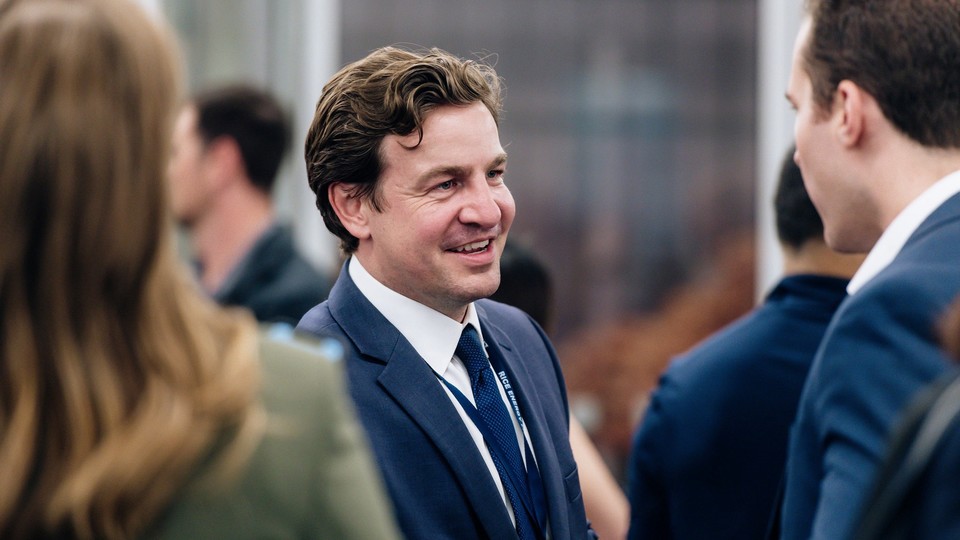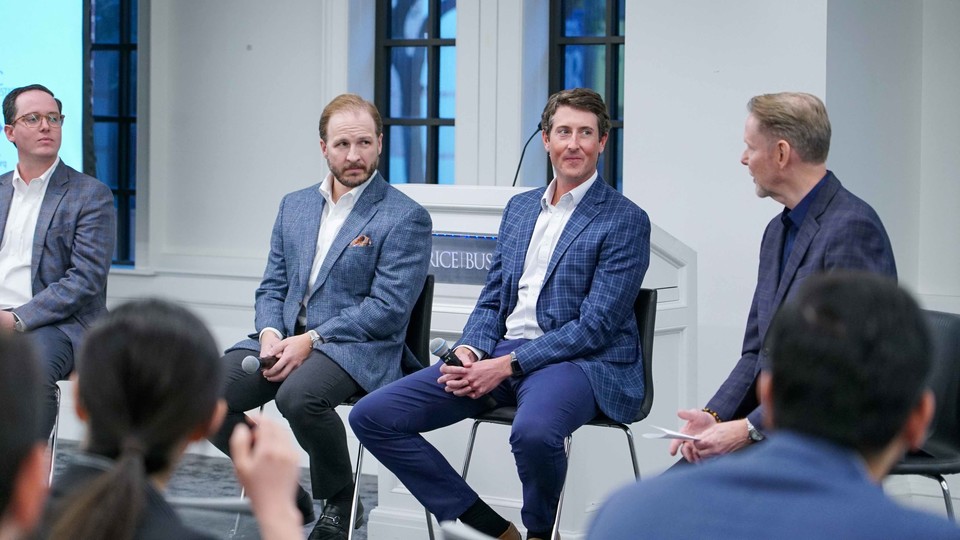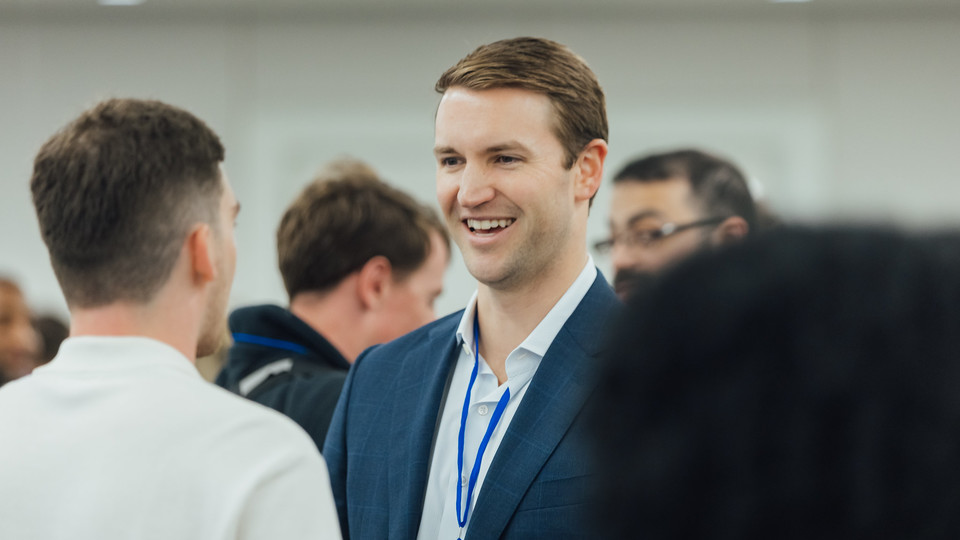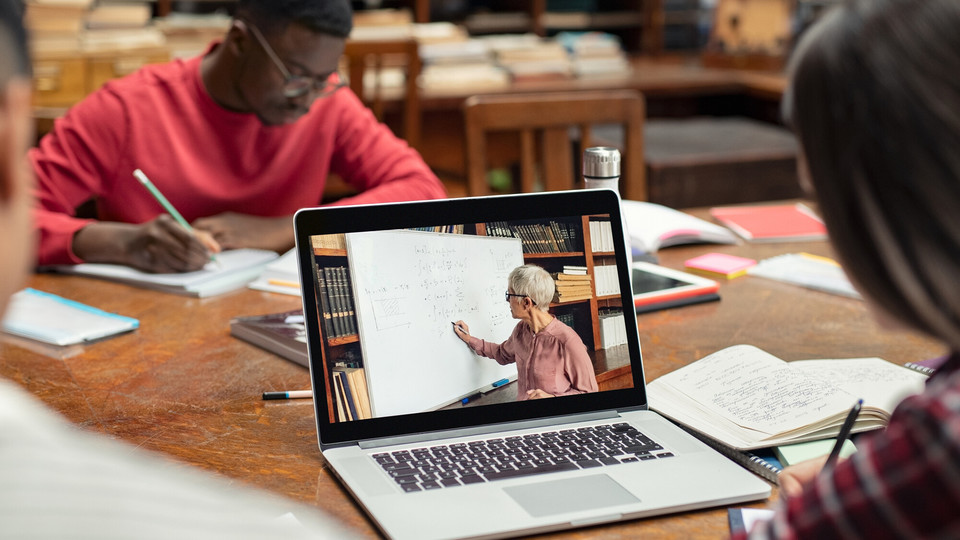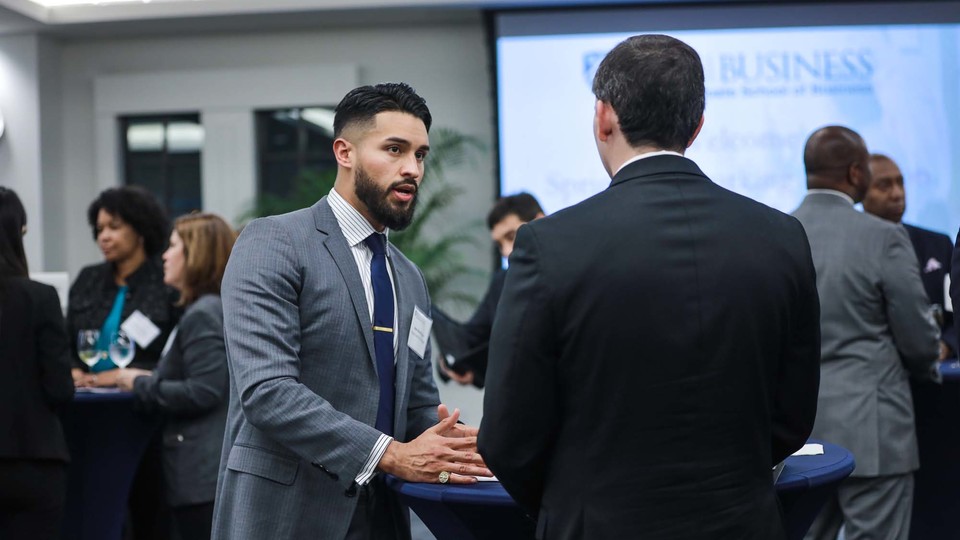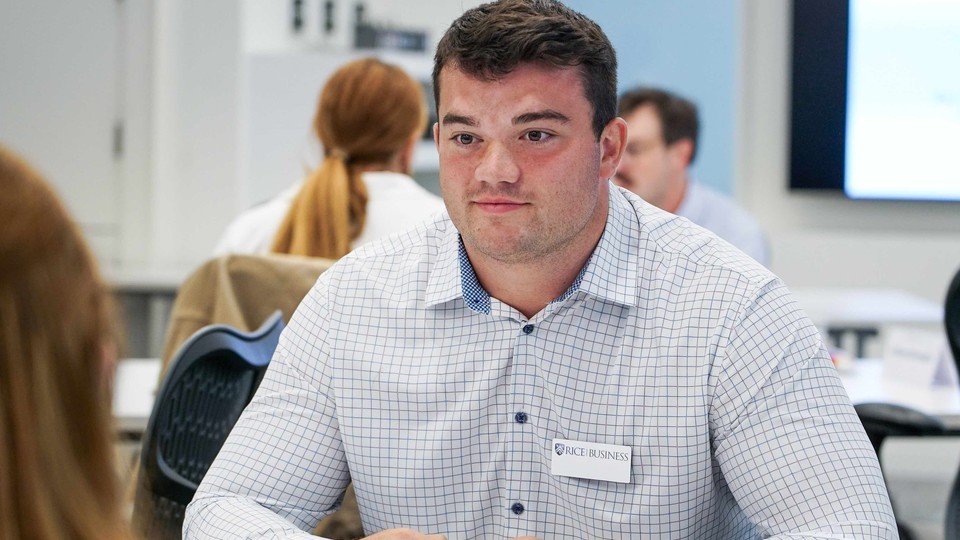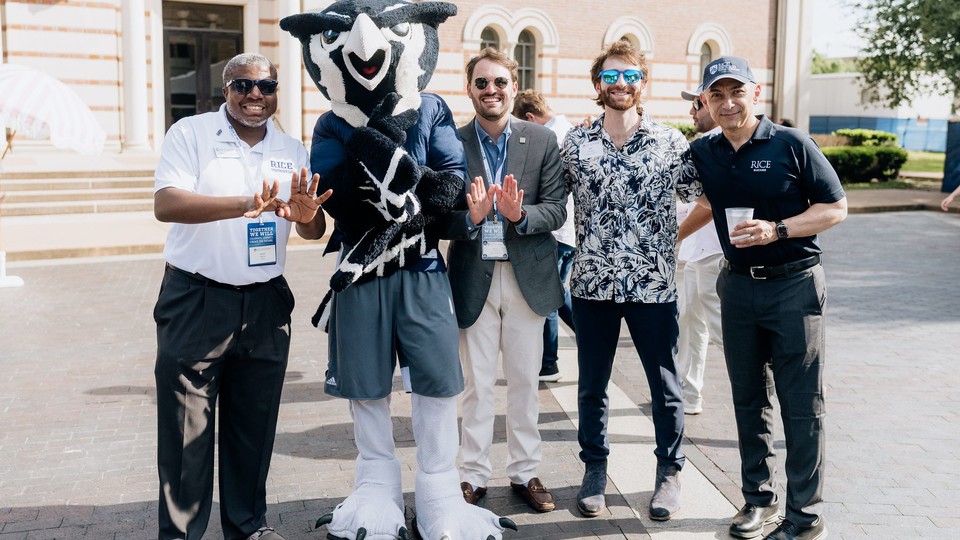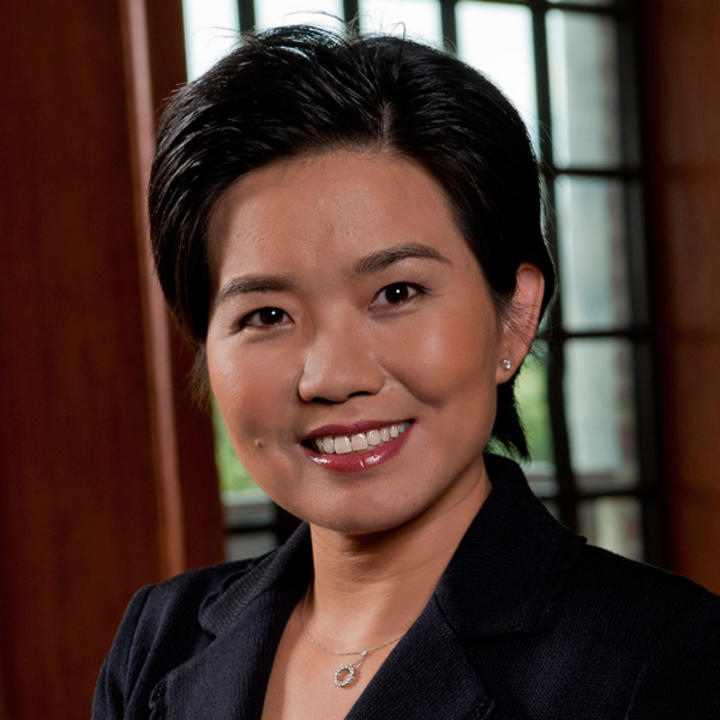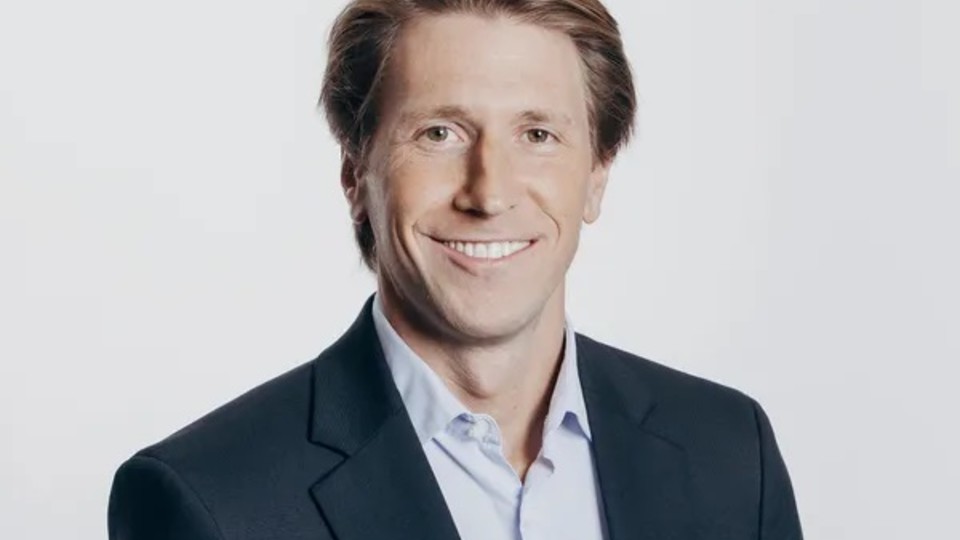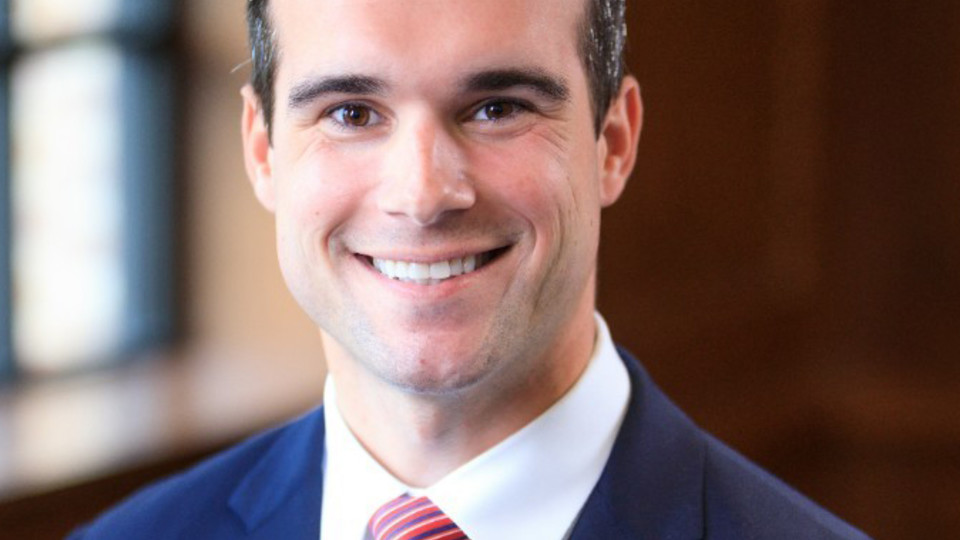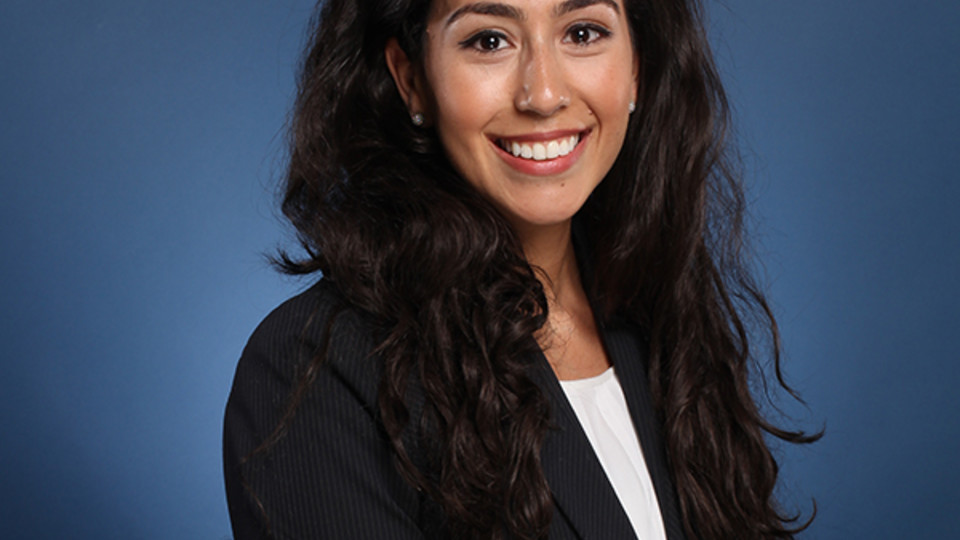Want to Connect With Industry Leaders? Look No Further Than Houston
Houston gives Rice Business a unique advantage for connecting students with industry leaders. Here are three reasons why.
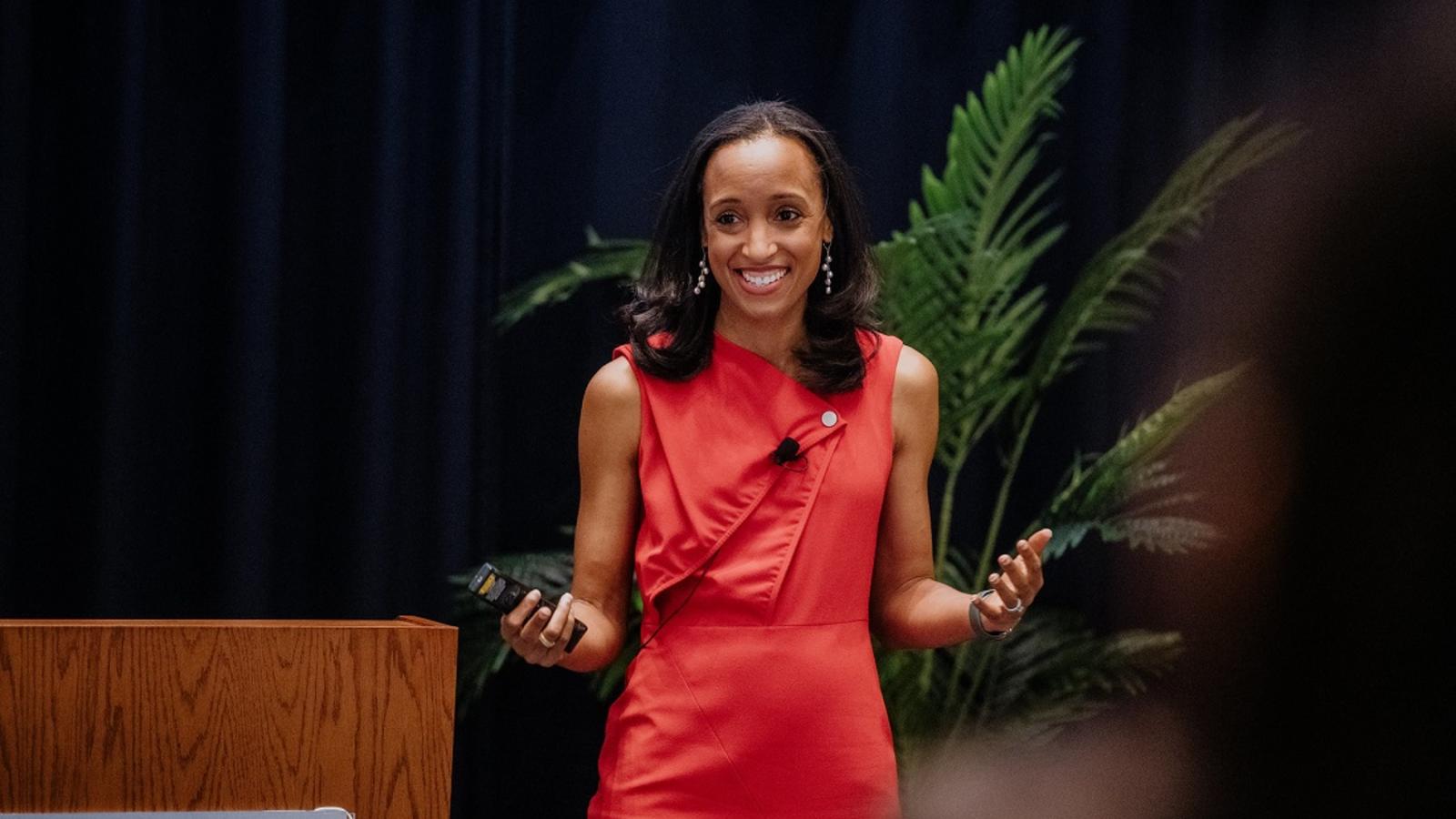
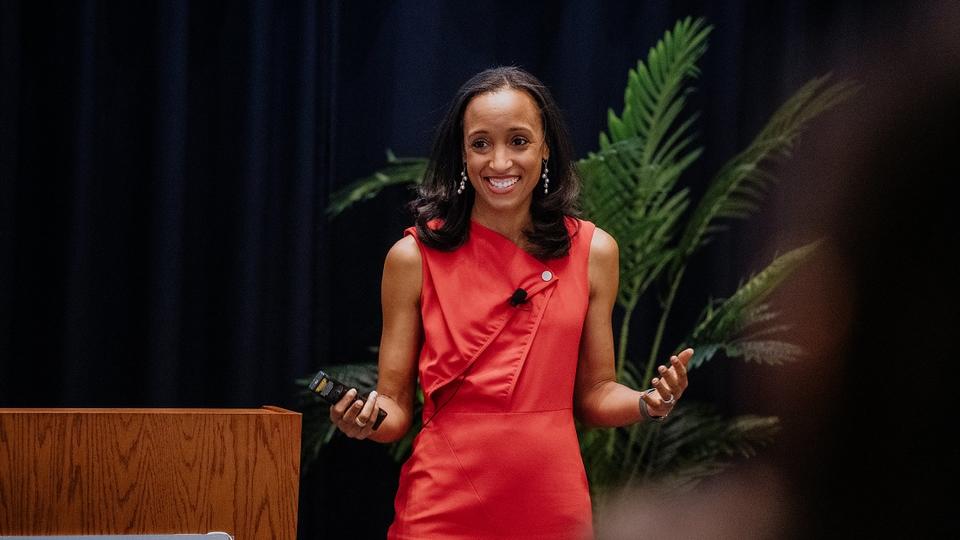
A quality MBA education will take you far beyond the limits of theory and textbooks. It will also expose you to the invaluable insights of industry leaders. Having ready access to industry expertise means students are continually exposed to new ideas, emerging trends, and transformative opportunities.
When it comes to connecting with prominent business leaders, Rice Business enjoys a unique advantage: our location. Being in the vibrant city of Houston, we consistently draw a high-profile lineup of keynote speakers, guest lecturers, and conference panelists – people like Carolyn Comer (Shell Energy Americas), Osmar Abib (Credit Suisse) and Shiza Shahid (The Malala Fund).
Here are three reasons why Houston is the best place to network in business and connect with leaders in your industry.
Houston is not just a city. It's a dynamic business hub.
Houston has the 3rd highest number of Fortune 500 company headquarters among U.S. metro areas. We lead the world in a wide range of industries, from energy and tech to healthcare and finance.
This means Rice MBAs regularly make leadership connections by meeting prominent Houston professionals who are eager to share their stories and knowledge.
Interested in Rice Business?
Houston is the most diverse city in the U.S.
Being the 2nd most diverse city in the United States means we have the best food in the country, of course. But it also means Rice Business is part of a robust, multi-cultural networking landscape.
Rice MBAs have access to embassies, transnational business networks, and global organizations. So, our consulting projects and experiential labs serve as a gateway to international connections and global leaders. Our students regularly interact with world-changers – from right here at home.
Rice Business forums and conferences add to Houston’s intellectual capital.
Our students organize annual thought leadership and research forums like the Rice Energy Finance Summit (REFS), the Diversity, Equity and Inclusion Conference and the Women in Leadership Conference (WILC).
These renowned events attract top-tier researchers, entrepreneurs, scholars and founders – people like Andrea Alexander (Rent the Runway), Maureen “Mo” Berkner Boyt (The Moxie Exchange), and Kaes Van’t Hof (Diamondback Energy). These visitors challenge and empower Rice MBAs to make a positive impact in their chosen fields.
So, if you’re looking for an MBA program that goes beyond the ordinary…
Rice Business in Houston is the place to be. We can’t wait to welcome you to our community of future forerunners and trailblazers.
You May Also Like
Keep Exploring
Rice launches certificate programs in healthcare management, human resources management in partnership with Emeritus
New certificate programs in healthcare management and human resources management will be led by Rice Business professors Edward Kroger and Jeff Frey, respectively.
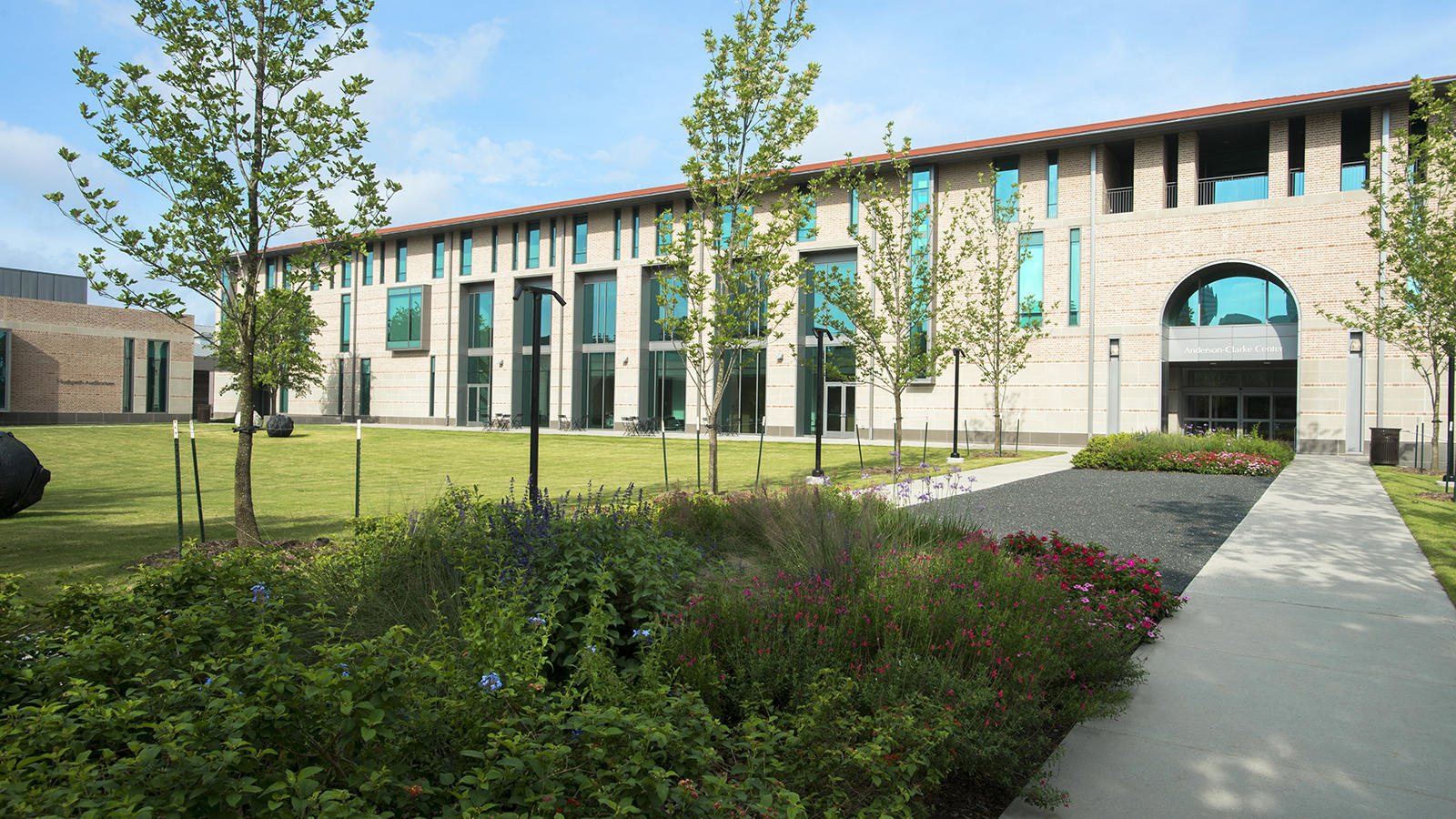
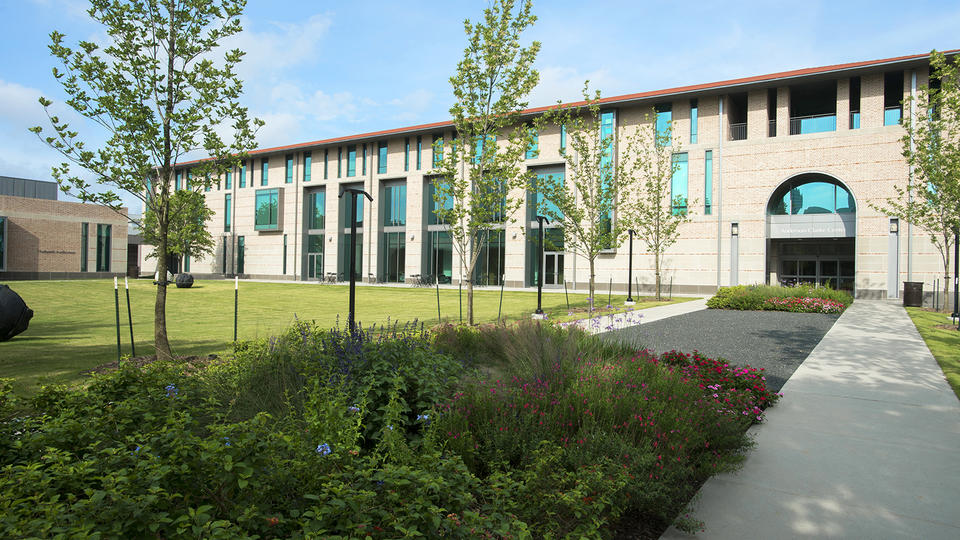
Programs aim to equip healthcare and HR managers with in-demand skills to accelerate careers
Rice University’s Susanne M. Glasscock School of Continuing Studies (GSCS) has opened enrollment for two new professional certificate programs in healthcare management and human resources management to address immediate workforce needs. The programs are being launched in partnership with Emeritus, an online education platform that aims to make world-class professional education accessible and affordable.
“Rice is committed to producing leaders across the spectrum of human endeavor,” said Kristen Schlatre, assistant dean for professional and corporate programs and director of GSCS’s Center for Philanthropy and Nonprofit Leadership. “The Glasscock School furthers that mission by drawing upon Rice’s expertise to train leaders in areas of need for our Houston community and beyond. These two certificate programs are a direct reflection of that, preparing students to enter and excel in the fields of human resources and healthcare management — two areas where Rice offers world-class education.”
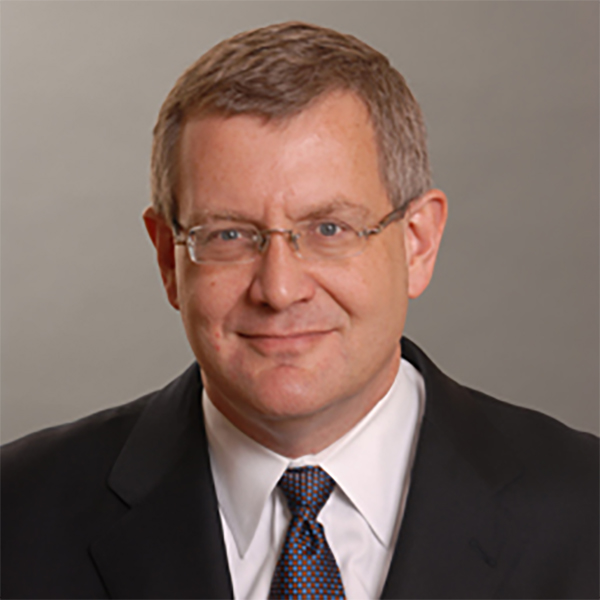
The six-month Healthcare Management Program, led by Edward Kroger, lecturer in healthcare management at Rice’s Jesse H. Jones Graduate School of Business, provides an immersive curriculum focusing on the practical skills needed to oversee day-to-day organizational needs, manage cross-functional teams and ensure a high standard of quality-driven, values-based care. It aims to equip managers with skills that can meet the world’s current and future health needs.
“The key to delivering excellent healthcare in the next decade is fully analyzing both outcomes and costs for each type of care over longer periods of time,” Kroger said. “This career will be a true calling - focused on saving lives and improving the health of other human beings. As an essential service and one that is growing rapidly, healthcare offers unequaled job security.”
The seven-month Human Resources Management Program offers an application-based curriculum designed around the most relevant HR skills for work today. This program is designed to impart an in-depth understanding of the HR practices needed to navigate today’s top work concerns, including workforce planning, a hybrid work environment, digitalization, automation and artificial intelligence. It was built to address the current demand for HR managers who can implement employee engagement strategies that foster long-term loyalty, productivity and success.
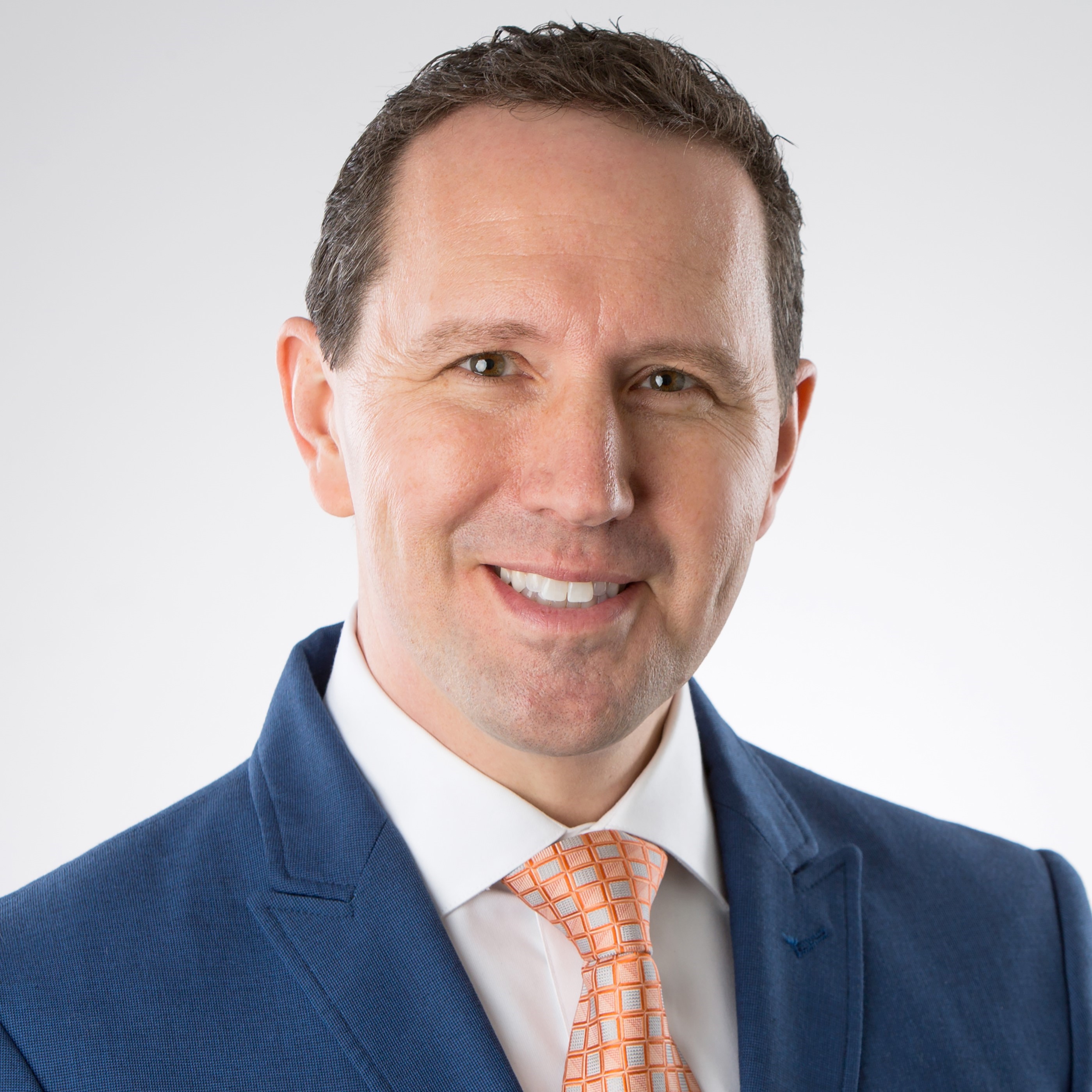
Led by Jeff Frey, lecturer in management at the Jones School, the new Professional Certificate in Human Resources Management guides learners through a curriculum focused on the core competencies of HR management, including creating a high-performance culture, increasing productivity and morale, building a performance-driven organization and establishing best practices in employee care.
“A common theme of this new normal we inhabit is a growing dehumanization of work. It’s important for HR to focus on initiatives that treat employees like humans and prepare them to do the same with others,” Frey said. “HR leaders who are staying relevant are implementing engagement strategies that win the hearts and minds of their current and future employees. This program will empower participants with new knowledge and skills and inspire them to apply it in practice.”
The Healthcare Management Program includes online video lectures, case studies, a management playbook and a final capstone project requiring participants to develop a quality improvement plan for a healthcare organization. A series of professional development opportunities with an executive coach complements the program work.
The Professional Certificate in Human Resources Management Program will feature real-world case studies, a job-ready portfolio, guest speakers and a final capstone project. Success coaching, career guidance and mentorship opportunities are also offered as part of the program.
“Today’s healthcare organizations face a complex environment, and as history has shown us, it can change in a heartbeat,” said Ranil Hearth, president of healthcare for Emeritus. “That is why we are seeing such an unprecedented increase in the demand for healthcare managers who are capable of balancing day-to-day operations with community needs and organizational goals.
“In addition, our work environment and professional norms continue to rapidly evolve with no signs of stopping, so organizations are putting a renewed focus on their hiring and retention strategies. That’s why human resources management has become one of today’s fastest growing fields,” he added.
Both programs are now open for application for August enrollment. To learn more, visit Professional Certificate in Healthcare Management and Professional Certificate in Human Resources Management pages.
About Emeritus
Emeritus is committed to teaching the skills of the future by making high-quality education accessible and affordable to individuals, organizations and governments around the world. It does this by collaborating with more than 50 top-tier universities across the United States, Europe, Latin America, Southeast Asia, India and China. Emeritus short programs, degree programs, professional certificates and senior executive programs help individuals learn new skills and transform their lives and organizations. Its unique model of state-of-the-art technology, curriculum innovation and hands-on instruction from senior faculty, mentors and coaches has educated more than 250,000 individuals across 80-plus countries. Founded in 2015, Emeritus, part of Eruditus Group, has more than 2,000 employees globally and offices in Mumbai, New Delhi, Shanghai, Singapore, Palo Alto, Mexico City, New York, Boston, London and Dubai. Following its $650 million Series E funding round in August 2021, the organization is valued at $3.2 billion and is backed by Accel, SoftBank Vision Fund 2, the Chan Zuckerberg Initiative, Leeds Illuminate, Prosus Ventures, Sequoia Capital India and Bertelsmann.
You May Also Like

Rice University’s Jesse H. Jones Graduate School of Business today announced the launch of its Graduate Certificate in Healthcare Management program, a 10-month, credit-bearing professional credential designed for current and aspiring leaders seeking deep expertise in the business of healthcare.
Americans Are Taking More Control over Their Work Lives – Because They Have To
‘Career portfolioing’ is a trend where people assemble different sources of income, such as side gigs, to give them a measure of independence from employers who provide little job security. Rice Business professor Scott Sonenshein discusses the trend for The Conversation.
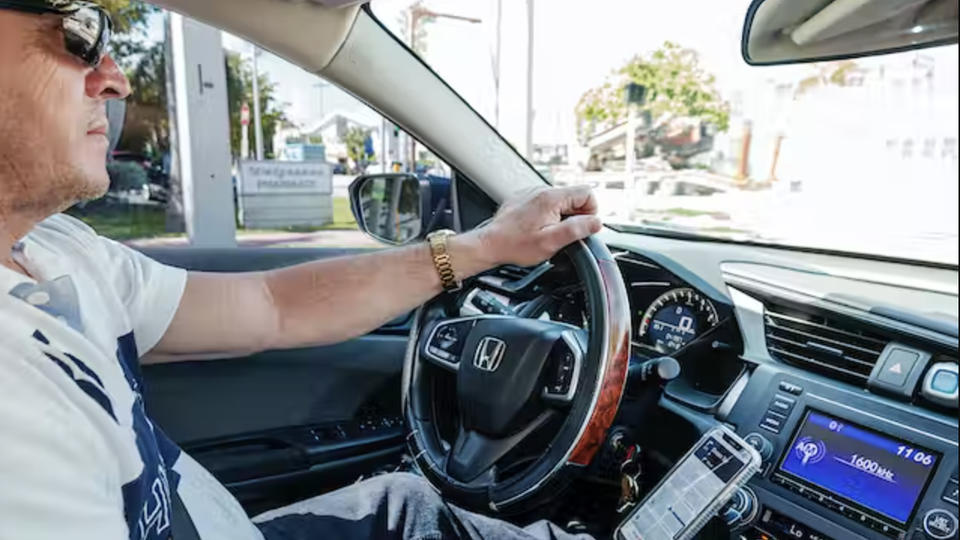
An Intern's Calling to Explore Environmental, Social, and Corporate Governance
Previously a senior associate at the largest global sustainability consultancy, Dana is no stranger to environmental principles. This summer, Dana is a part of Cisco’s FLEX Intern Program, exploring various facets of the company and prioritizing sustainability strategy.
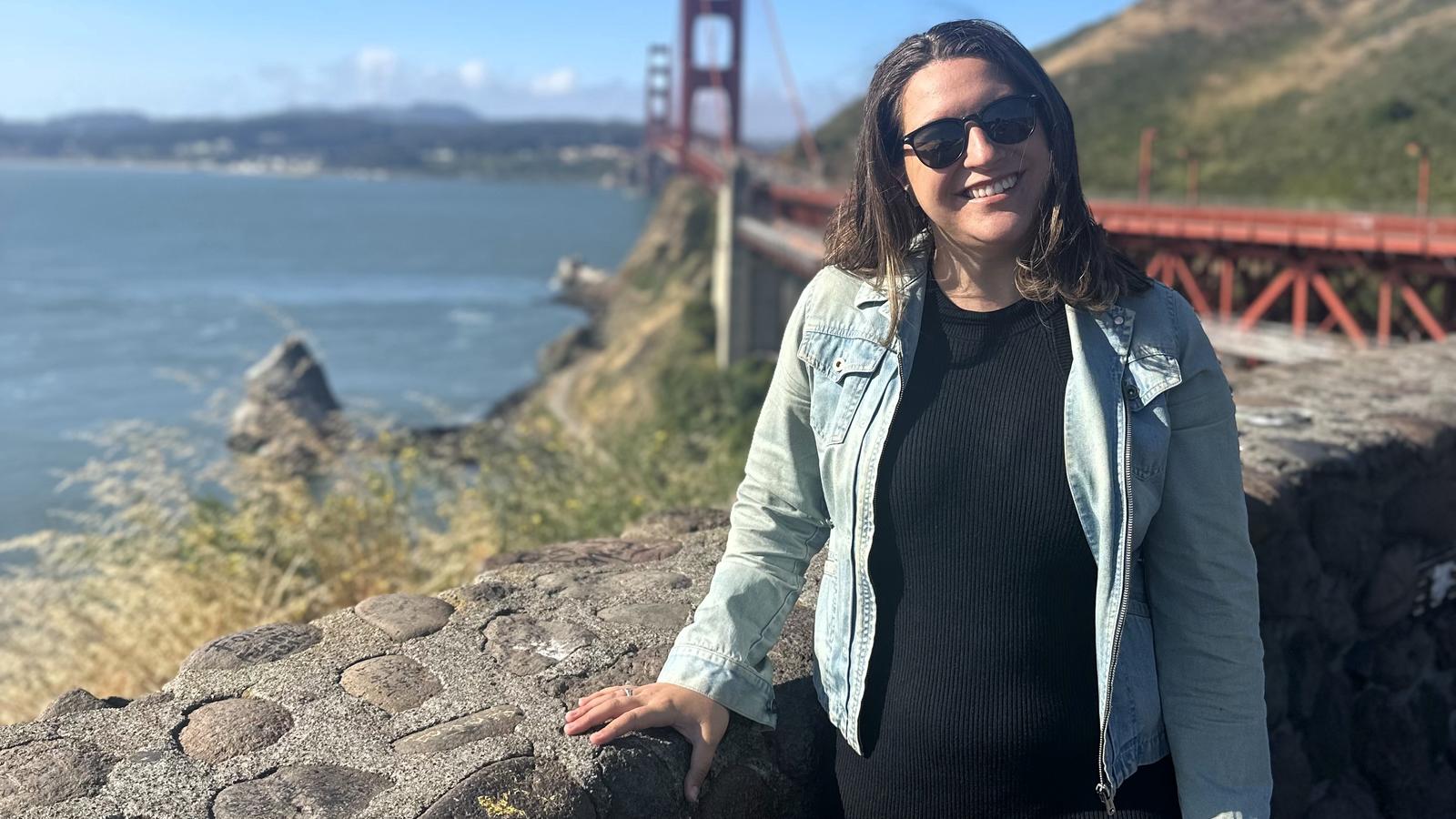
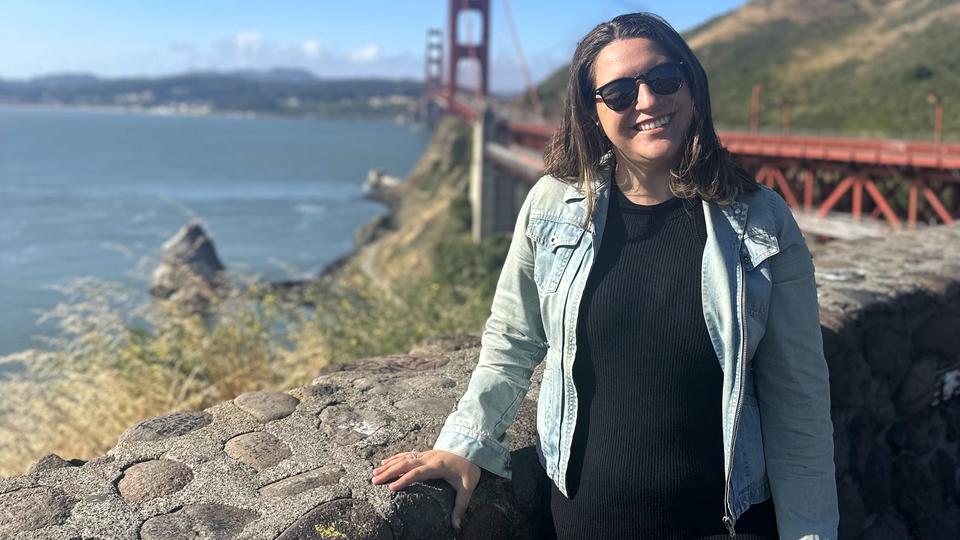
Meet Dana Vazquez, Full-Time MBA '24
MBA Internship: Cisco
Internship Location: San Francisco, CA
Position Before MBA: Senior Associate – Sustainability Strategy and Disclosure, ERM in Cleveland, OH
How did you secure your internship?
I have the pleasure of being in The Consortium at Rice University. I secured my internship with Cisco through the recruiting efforts of The Consortium’s Orientation Program (OP). I networked in a conference environment with the team, which provided unique opportunities to learn about Cisco’s work and culture.
What is your role and responsibilities during the internship?
I am a Rising Leader in Cisco's FLEX Intern Program, which stands for Find, Lead, and Explore. As part of the program, I can network and explore various aspects of Cisco, specifically in the 3P (people, policy and purpose) space. Within the sustainability strategy team, my role involves managing and planning sustainability projects across different business sectors. Additionally, as a FLEXer, I am tasked with delivering a strategic intern project with my cohort, allowing me to further explore another project within the organization.
What department is your internship with?
I work with the sustainability strategy team in the chief sustainability office.
How did your MBA coursework prepare you for this internship?
Many of my courses directly prepared me for my work this summer – both strategy courses, marketing, and many of my electives, namely Special Topics in Finance (with a focus on ESG) and Energy Markets in Transition. The core courses brought in foundational elements to bolster critical thinking and problem solving from a business lens, while the elective courses taught specific skills and theories that are being directly applied to my projects!
How does the internship align with your career goals?
My goal in business school was to explore what a career working for an organization within the ESG team would look like – this is a unique opportunity to not only see within an ESG program and gain additional expertise in the space, but to also explore how ESG spans across the organization and what other paths could be of interest as I grow. I know that I want to be involved in the ESG space as a career, but where I fit in is something I’m excited to continue to explore – being a part of the FLEX program allows me that time!
How do you think the internship will help you with your MBA studies or future career?
My classes have played a significant role in preparing me for the internship. Strategy and marketing courses, and elective courses such as Special Topics in Finance (with a focus on ESG) and Energy Markets in Transition have been especially valuable. Core courses provide a solid foundation for critical thinking and problem-solving through a business perspective. Electives equipped me with specific skills and theories that directly apply to my current projects.
How does the internship align with your career goals?
My goal in business school was to explore what a career working for an organization within the ESG team would look like – this is a unique opportunity to not only see within an ESG program and gain additional expertise in the space, but to also explore how ESG spans across the organization and what other paths could be of interest as I grow. I know that I want to be involved in the ESG space as a career, but where I fit in is something I’m excited to continue to explore – being a part of the FLEX program allows me that time!
How do you think the internship will help you with your MBA studies or future career?
Cisco is a large, global organization with immense reach and impact. Working with experts in the industry and contributing to the team pushes my development forward as an ESG professional. I also have had the opportunity to develop more technical skills, including brushing up on carbon accounting and carbon budgeting knowledge, which is something that is going to continue to be important as the landscape evolves.
What is your favorite part of your internship experience?
The sustainability strategy team has been incredible since day one. I have learned so much from the high impact projects I am part of, and I love how much the team embodies the values and culture of Cisco. I felt immediately trusted with interesting work and respected for my thoughts and opinions. I’ve been given plenty of opportunities for development. My internship cohort has made the experience even more special. Through our summer project, we have learned together and challenged each other to step outside our comfort zones. Cisco’s culture lends itself to a collaborative learning environment, and this experience has been crucial in my own growth as a teammate and leader.
What advice do you have for prospective students?
Come into the MBA with an open mind while keeping yourself motivated. It’s easy to be influenced by what’s popular or relevant and feel discouraged about being different or unique. Remember that work takes up a significant portion of our time, often exceeding 40 hours a week. If there’s a way to integrate things that energize you or collaborate with people who inspire you, it will bring immense value to your journey. You never know which opportunities will surprise you if you give them a chance!
Interested in Rice Business?
You May Also Like
Rice Business celebrates five years of the Online MBA
This month, the online MBA program at Rice Business celebrates five years since matriculating its first cohort of students. The online MBA has become the fastest growing program at the business school since its launch in 2018.
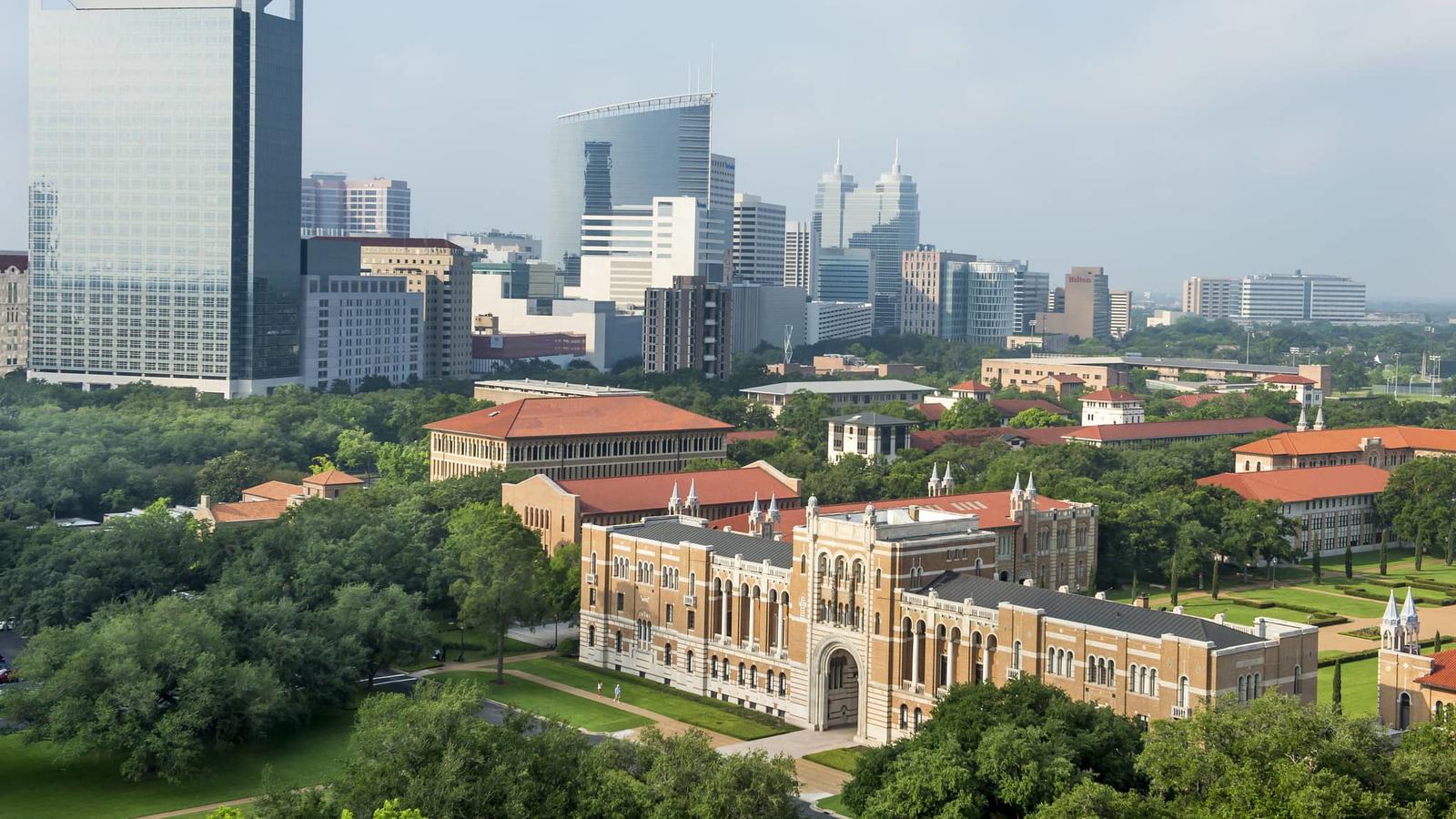
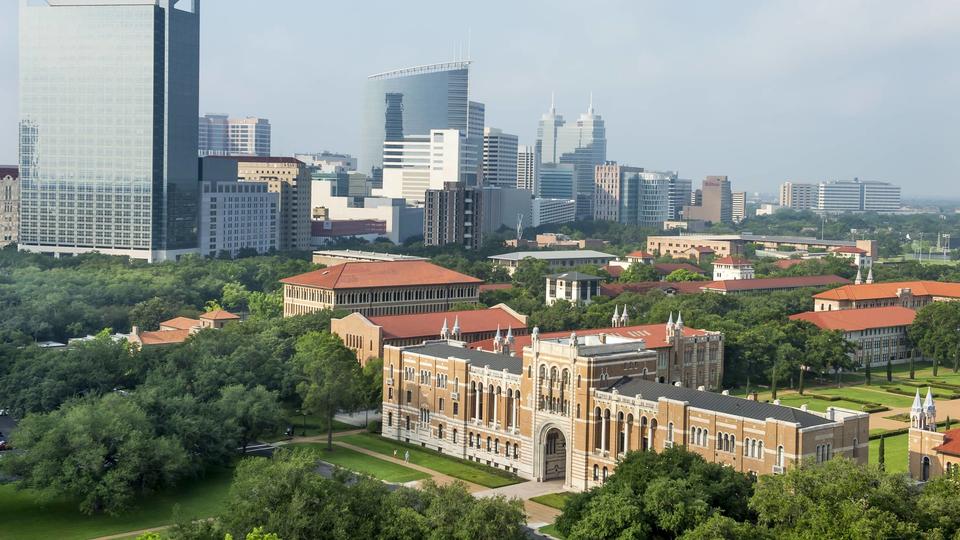
This month, the online MBA program at Rice Business celebrates five years since matriculating its first cohort of students. The online MBA has become the fastest growing program at the business school since its launch in 2018.
Ranked No. 12 for online programs by U.S. News and top 5 for online programs by Princeton Review and Poets & Quants, the online MBA is recognized for its rigor and service to students – which includes a large portion of veterans.
“The online MBA has grown enrollment and contributed to the culture of the school through student government and club roles,” said Rice Business Dean Peter Rodriguez. “And alumni from this program are contributing, too. The newest alumni board president, for instance, hails from Boston via the online MBA program. It shows that having an online MBA serving working professionals who may not have the option to study on campus allows us to broaden our reach and impact.”
Of the currently enrolled students, 25% are outside of Texas, the average age is 38 and 24% are veterans. Of the graduates, 24% were from outside of Texas, the average age is 36 and 15% were veterans. The program’s success has also allowed Rice Business to grow its tenure-track faculty by 40%.
To learn more about Rice Business’ online programming, click here.
You May Also Like

Rice University’s Jesse H. Jones Graduate School of Business today announced the launch of its Graduate Certificate in Healthcare Management program, a 10-month, credit-bearing professional credential designed for current and aspiring leaders seeking deep expertise in the business of healthcare.
Borrowing on Innovation
What kinds of patents tend to be accepted as collateral?
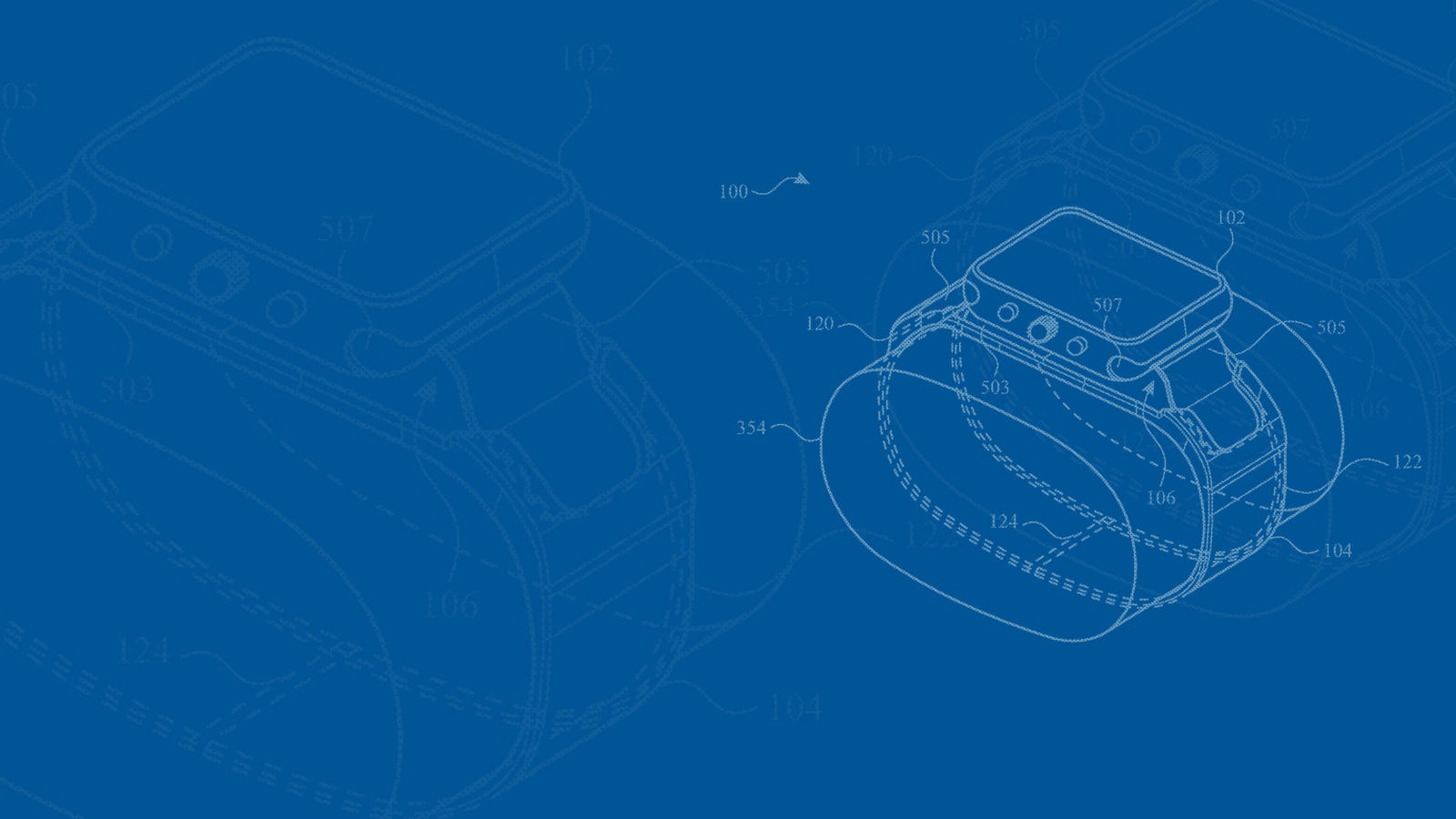
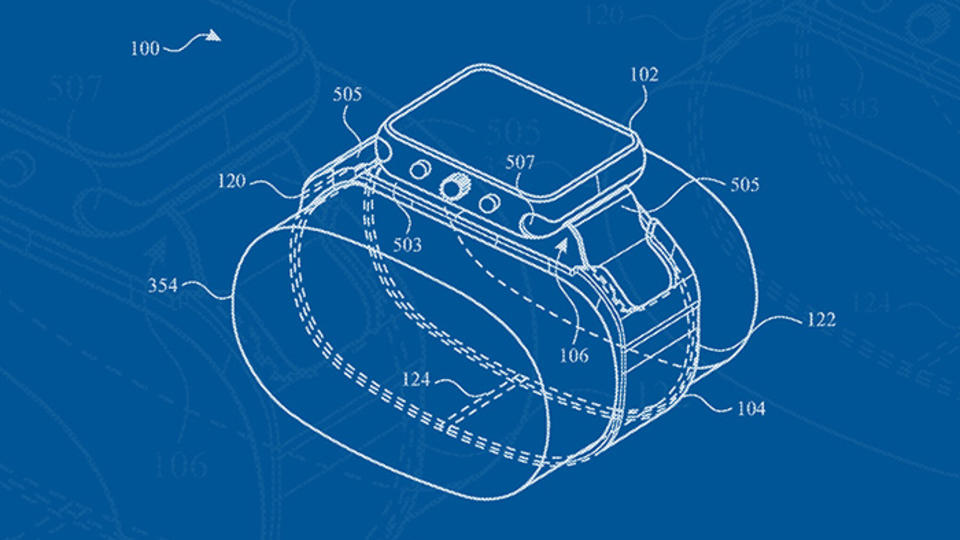
Based on research by Yan Anthea Zhang (Rice Business), Zhuo Emma Chen (American University), and Yuandi Wang (Sichuan University)
Key findings:
- Patents are increasingly used as collateral in the debt market.
- Patents that are based upon new – but not too new – prior inventions are the best collateral because they have proven to be commercially viable and are less likely to become obsolete.
- Lenders consider a firm’s technological expertise when evaluating patents.
For companies and leaders, patents represent important assets. They’re a marker of innovation and tech development. But patents do so much more than protect intellectual property. Firms increasingly deploy them as collateral to secure loans. Between 1995 and 2013, the number of patents pledged as loan collateral increased from about 10,000 to nearly 50,000. Forty percent of U.S. patenting firms have used patents as collateral.
However, patents are intangible assets, and their liquidity and liquidation value are difficult to assess. To evaluate an individual patent, lenders must consider the invention space to which the patent belongs. A patent’s linkage to prior inventions can provide important information for lenders, as the linkage affects the extent to which the patent under consideration may be redeployed and potentially purchased by other firms in the case of loan default.
Rice Business professor Yan Anthea Zhang examined more closely how this market operates and how both lenders and borrowers can make more informed decisions on which patents make appealing collateral. In their paper, “Which patents to use as loan collateral? The role of newness of patents’ external technology linkage,” Zhang, who specializes in strategic management, and her co-authors studied the data on 107,180 U.S. semiconductor patents owned by 436 U.S. firms.
The team focused on semiconductor patents because the semiconductor industry involves intensive innovation, which leads to many patent applications and grants. The market for semiconductor patents is an active and well-functioning market, given specialization in different stages of the innovation process and the growing technological market. Information on whether a patent was used as loan collateral came from the USPTO Patent Assignments Database.
Zhang and her colleagues argue that lenders prefer patents linked to prior inventions that are relatively new because these patents are riding on recent technology waves and are less likely to become obsolete. As a result, such patents are likely to remain deployable to other firms in the future. However, patents that are based upon too new prior inventions might not prove to be commercially viable and carry higher risk for lenders.
As a result of this research, Zhang and her colleagues found an inverted U-shape relationship to demonstrate the likelihood that a patent will be used as loan collateral. On one end, patents based upon the newest prior inventions, on the other, patents based upon mature prior inventions. The curve of the U-shape represents the sweet spot for patent collateral—the patents’ technological base is new enough to be relevant and competitive with other firms in its invention space, but not so new that it has yet to prove market success.
Zhang’s team also found that the impact of external linkage also varies depending on borrower attributes, especially the borrowers’ expertise in the invention space. If a borrower is a technological leader in the invention space, the market tends to give the borrower credit, and as a result, even if its patents are based upon very new prior inventions, its patents are still likely to be accepted as collateral.
Zhang, Chen, and Wang (2021). “Which Patents To Use as Loan Collaterals? The Role of Newness of Patents' External Technology Linkage,” Strategic Management Journal.
Never Miss A Story
You May Also Like
Keep Exploring
What Does A B-School Need To Do To Earn A No. 1 Ranking For Carbon Footprint? Be Like Virginia Darden
Business schools around the world are making a concerted effort to put their sustainability studies into practice on their own campuses. Rice Business ranks at number 17 in the U.S. on the Financial Times 2023 Carbon Footprint ranking.

An Exclusive View of an Innovation Leader's Transition to Luxury Goods
Starting an exciting career pivot, Adrienne's internship at E&J Gallo Winery provides her with valuable industry insights and an opportunity to navigate the world of large-scale luxury goods.
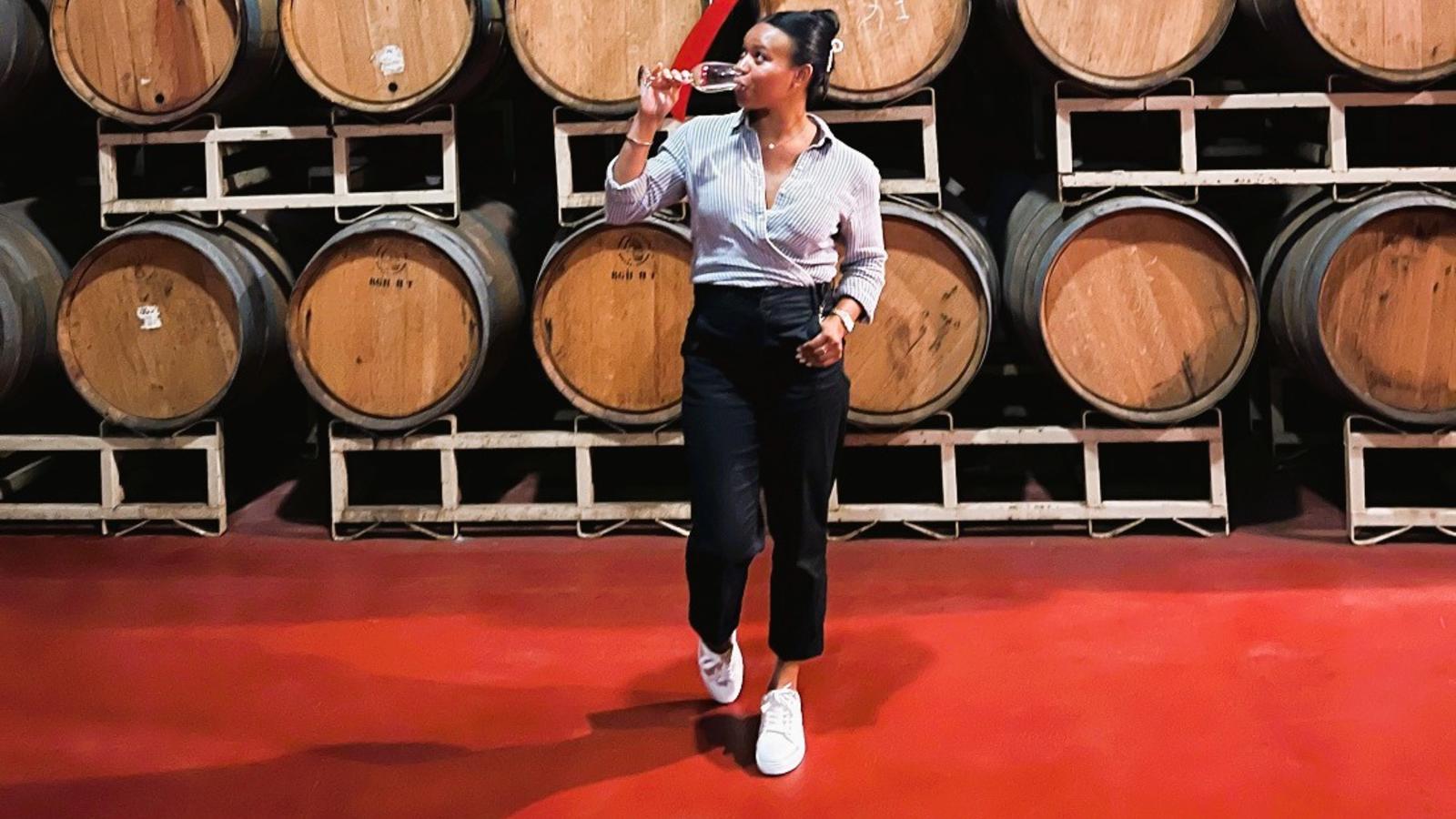
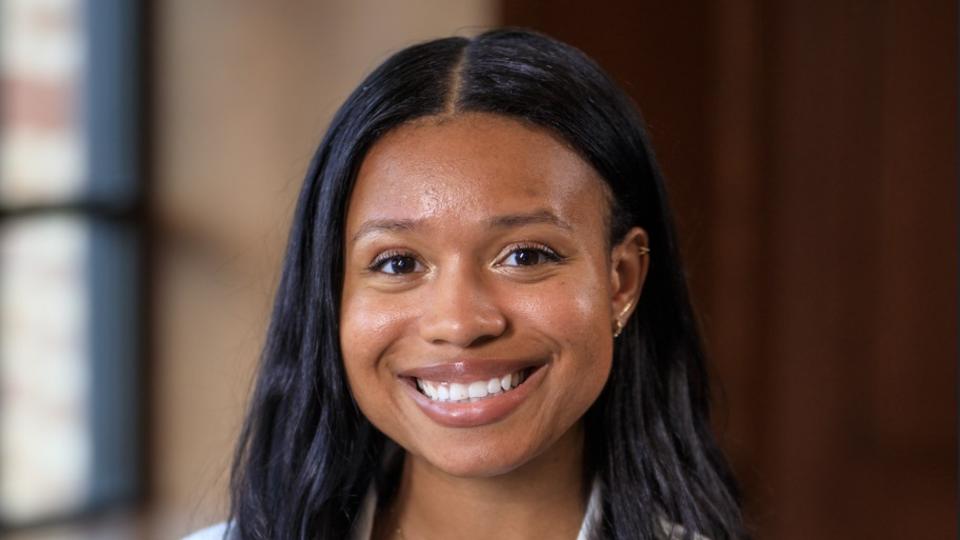
Meet Adrienne Miller, Full-Time MBA '24
MBA Internship: E&J Gallo Winery
Internship Location: Modesto, CA
Position Before MBA: Project Manager of Innovation at ALSAC/St. Jude Children's Research Hospital in Atlanta, GA
How did you secure your internship?
I interviewed for my role during The Consortium’s Orientation Program (OP). I secured it by asking thoughtful questions about innovation and demonstrating an ability to think creatively about cost savings and motivating others.
What is your role and responsibilities during the internship?
My role entails creating a detailed strategy on how to transform or innovate our fiber materials to generate cost savings and minimize waste in packaging.
What department is your internship with?
Supply Chain – Operations. Gallo is the largest winery in the world, producing over 3% of the world's annual supply of wine, and wine is only one area of their business. Their operations are jaw-dropping and the most exceptional teams make it happen daily.
How did your MBA coursework prepare you for this internship?
My Data Analysis class equipped me to craft impactful insights and visualizations and communicate stories through data. My courses in organizational behavior, diversity equity and inclusion in business, and strategic business communication prepared me to work with different groups of people, traversing a large and dynamic organization, and how to thoughtfully question how we work and how that works fits into a broader company culture. Operations helped me have a grasp of manufacturing operations (although nothing can really prepare you for the scale of operations that Gallo requires). Lastly, I think Leading Change will end up helping me recommend cost-saving adjustments my team can make.
How does the internship align with your career goals?
I’m interested in pivoting into luxury goods innovation – for example, wine, perfume, and diamonds. This internship will give me a broader understanding of operations and innovation in the wine industry, specifically. But it also gives me experience working in a high-producing, global operations setting. Hopefully by the end of this experience, I’ll have a stronger sense of how I want to proceed.
How do you think the internship will help you with your MBA studies or future career?
The internship will help me in a myriad of ways. Of course, it bridges the gap between classroom and real-world business applications, providing me with hands-on experience to apply what I’ve learned in a practical setting. For my career, the internship diversifies my experiences and skill sets while expanding my network and understanding of the wine industry. I'm genuinely enjoying my experience. It could potentially be the starting point of my next step in my journey. Time will tell what's next for me, but I'm open to the industry and I'm not sure I would have been able to see a possible career in it if I hadn't taken this internship.
What is your favorite part of your internship experience?
Our Napa Valley trip will be unbelievable! We visit several of our properties and dive into viticulture and enology while bonding, but all the tastings and 101s of spirits and wine are making me so much more knowledgeable, which will make me a better leader as the Wine Club Vice President
What advice do you have for prospective students?
Take the time to figure out what drives you, what you value and what you are hoping to obtain in getting an MBA. That knowledge should inform you of your unique fit – which hopefully is Rice – but will also help you navigate the MBA experience. For admitted students about to embark on this journey: Recognize that the time you are doing an MBA is an unmatched opportunity for exploration and connection. Stay open, curious and kind along the way.
Interested in Rice Business?
You May Also Like
An Intern's Mission to Make Houston the Energy Transition Capital of the World
Nikki landed an internship opportunity with Quanta's strategic operations team, focusing on new market opportunities in energy transition issues and technologies.
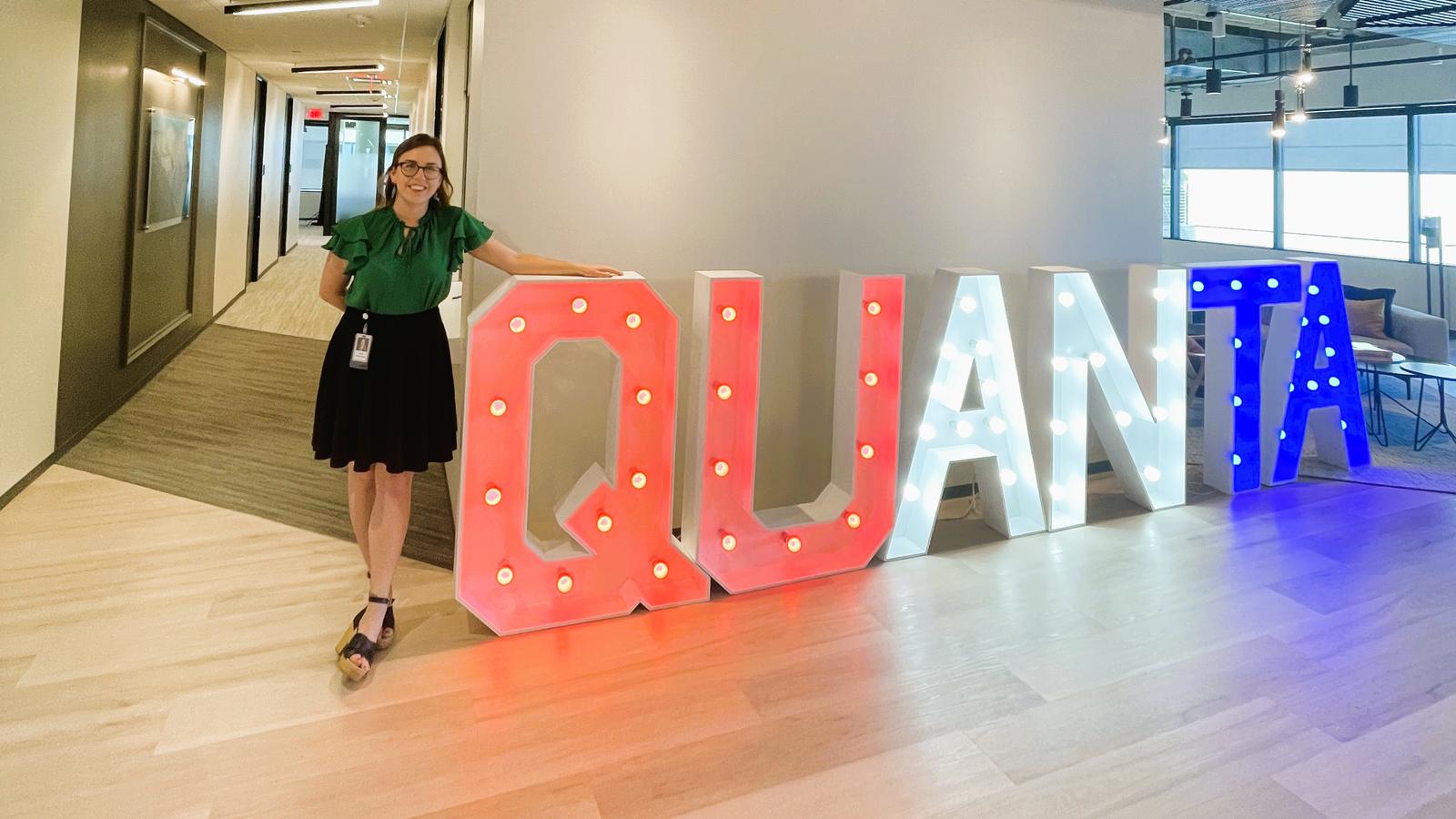
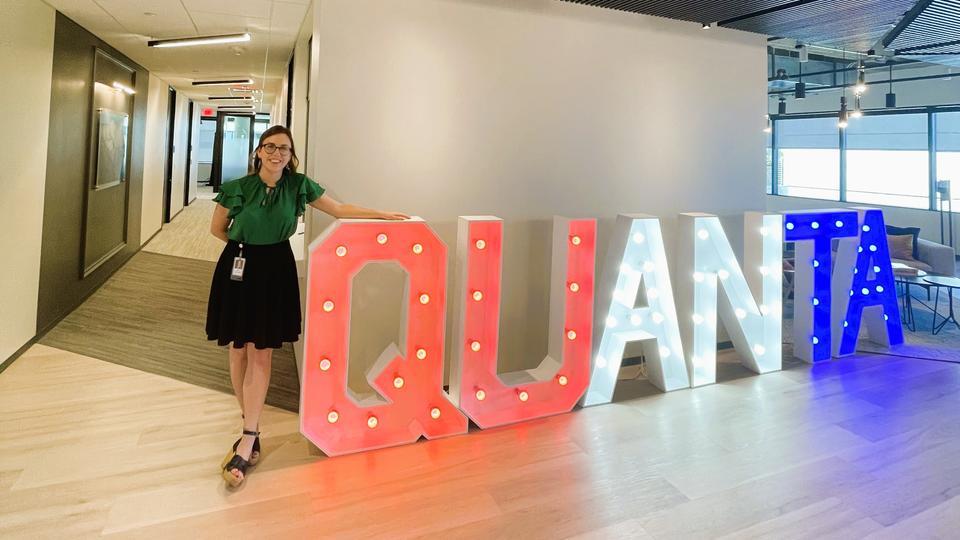
Meet Nikki Beittenmiller, Full-Time MBA '24
MBA Internship: Quanta Services, Inc.
Internship Location: Houston, TX
Position Before MBA: North American Energy & Cleantech Specialist, Egon Zehnder in Houston, TX
How did you secure your internship?
I was getting breakfast with a former colleague, and we started discussing the work his friend, a VP at Quanta, was doing to help rebuild the grid in Puerto Rico. My colleague connected the two of us and after some great conversations about P.R. and a variety of energy transition topics, I got to meet the rest of the team. From there, they offered me an internship opportunity!
What is your role and responsibilities during the internship?
As a corporate strategy intern, I focus on evaluating new market opportunities specifically related to energy transition issues and technologies. So far, that has included market opportunity assessments for things like low-carbon hydrogen, carbon capture, temporary power solutions, renewable natural gas (RNG) and more. I meet with Quanta customers to give them our perspectives on market developments and to highlight Quanta’s capabilities across the energy and power value chain.
In addition, I meet with business development and technical teams from across the Quanta family of operating companies (there are over three hundred!). I share market intelligence related to energy transition topics while listening to the perspectives they hear from customers in the field.
Finally, I help our leadership team evaluate specific investment opportunities in earlier-stage climate tech companies and venture funds.
What department is your internship with?
Strategic operations (the equivalent of a corporate strategy group).
How did your MBA coursework prepare you for this internship?
Our strategy classes with Professor Balaji gave me excellent frameworks for assessing new market opportunities and then presenting them to senior leadership. Other important core concepts from our finance, data analysis and accounting classes have given me the ability to present financial and other quantitative data and evidence to support my work. Our core marketing class offered helpful lessons for how we can market ourselves effectively to customers as they begin to pursue their own energy transition-related projects.
How does the internship align with your career goals?
I came to Rice Business to support my transition from professional services (i.e., consulting) to the corporate side of energy transition. As a native Houstonian, I’m passionate about helping Houston transform from the energy capital of the world to the energy transition capital of the world. To do that, I knew I wanted to work for a company that has the reputation, scale and ambition to advance the energy transition both here and across the country. Quanta is exactly that place. Working on the strategic operations team has been the perfect place to connect market insights with Quanta capabilities. I've leveraged my industry knowledge and consulting skillset while learning new things every day about the vast world of infrastructure solutions and all the various emerging energy technologies that we need to help our country achieve its net-zero goals.
How do you think the internship will help you with your MBA studies or future career?
It’s been such a great experience to put the concepts we’ve learned in class into practice. For example, I’ve become more comfortable integrating financial and accounting data into my presentations to senior leadership.
What is your favorite part of your internship experience?
This is my first time working at a company this large and working at corporate headquarters. You really feel the difference in terms of the culture. I frequently grab coffee or lunch with members of Quanta’s executive leadership team – not only because we’re conveniently in the same spot but because they are genuinely interested and invested in the work I’m doing. Quanta treats its employees very well, which has been great to experience.
What advice do you have for prospective students?
Don’t limit yourself to only considering internships that come to campus to recruit, especially if you are interested in roles outside of consulting or finance. Some of the most exciting opportunities out there are in less obvious places. Pretty much everyone I spoke to was interested in recruiting Rice MBA students or knew someone else that was. Reach out to your network, including the Rice network. And keep an open mind. You never know when breakfast with a friend could turn into a career opportunity!
Interested in Rice Business?
You May Also Like
His Passion for ALS Research Starts at Home feat. Daniel Barvin ’18
Season 3, Episode 20
In this episode recorded at Rice Alliance in McNair Hall, Daniel chats with host Maya Pomroy ’22 about his journey, his passion for ALS research, and building community and support for others affected by this disease.
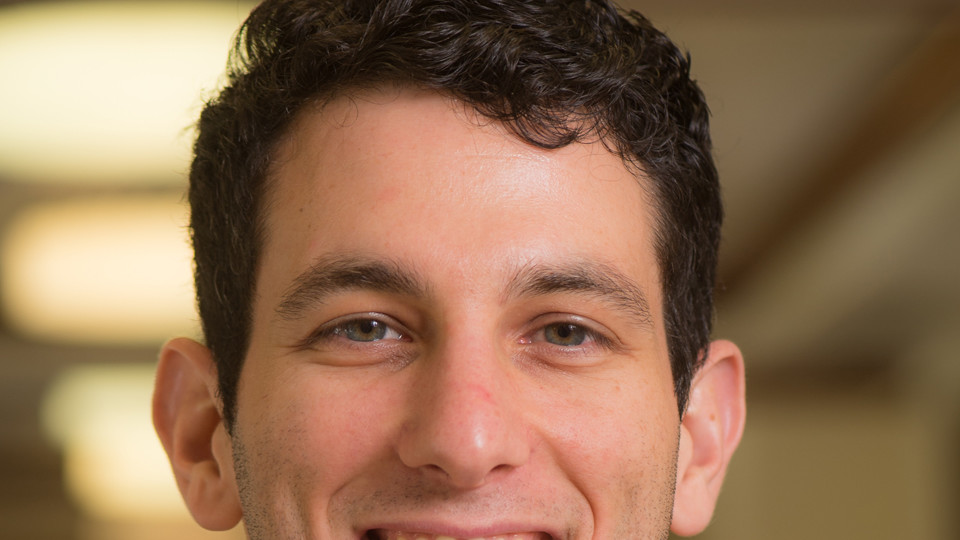
Owl Have You Know
Season 3, Episode 20
Tune into the first of our recordings from this year’s alumni reunion!
Daniel Barvin earned an MBA from Rice Business in 2018 and, in December of the same year, tested positive for an ALS gene mutation. He shares how this life-changing news shifted his perspective and career trajectory, inspiring him to pivot from financial advising to a career in patient advocacy. He is now the VP of operations and patient advocacy at Coya Therapeutics, driving progress in treating neurodegenerative diseases and fighting to end ALS. We’re grateful to Daniel for sharing his story.
Watch
Listen
Subscribe to Owl Have You Know on Apple Podcasts, Spotify, Youtube or wherever you find your favorite podcasts.
Episode Transcript
-
[00:00] Intro: Welcome to Owl Have You Know, a podcast from Rice Business. This episode is part of our Pivot Series, where guests share stories of transformation in their lives and careers.
[00:12] Maya: Thank you so much for being with us today on this Owl Have You Know. It's a special Owl Have You Know because it is Reunion Weekend, and we have some phenomenal guests with us today that we, kind of, snagged out of partio to talk to us. Hopefully, you've been able to have a drink or two before you've, like, walked in here to the Rice Alliance.
[00:31] Daniel: We've been having a good time. And hopefully, I'll keep my wits about me.
[00:35] Maya: Okay. All right, promise?
[00:36] Daniel: Promise.
[00:37] Maya: All right. Well, so our guest today is Daniel Barvin. You are a professional MBA from the class of 2018. Welcome back.
[00:43] Daniel: Thank you. It's great to be here.
[00:45] Maya: It's been five years.
[00:46] Daniel: You know, I parked in the parking garage and I said, "Oh, my God, it feels like an eternity since I've been back."
[00:52] Maya: Really, the parking garage told you this?
[00:53] Daniel: Well, you know, the, the ambiance of the entire, you know, Rice University and Rice Business did. But it feels great to be back amongst this community and sharing in this innovative discussion of thought. Just I missed being a part of this school.
[01:08] Maya: Well, you're always welcome to come back. I mean, you do live in Houston, right?
[01:11] Daniel: I do.
[01:12] Maya: So, you can always just, you know, pop back in whenever you want to.
[01:15] Daniel: I'm starting to do that.
[01:16] Maya: And whenever, you know, whenever the, the, you can always walk on campus and, you know, come and see some familiar faces. You were just telling me that you, you and Al Danto are, are very close. He was probably one of your favorite professors, like he was for me as well.
[01:29] Daniel: Definitely was.
[01:30] Maya: Also, he's, he's got a phenomenal story of, of what's happened to him in the last couple of years. And you have a phenomenal story as well. So, so, you started out in wealth management. That was... so did you study that as an undergrad?
[01:42] Daniel: No, my background in undergrad was focused in mechanical engineering. I had a lovely grandfather who said, "Daniel, I need you to go to school. And commit to doing something that, that can make things happen. Don't get a career in X, Y, and Z." It was basically what he said. And I spent the first 10 years of my career in oil and gas, designing deep sea drilling equipment, and never had a passion for it, and was searching for this passion. And my wife, I think she's my wife at the time, but we dated for the, pretty much the majority of our adult lives. Was a violinist or is a violinist and now is a violin teacher. And I saw the incredible passion that she derived from her studies, from her practice, from performing, from teaching children. And I said, why don't I have something like that? And it was actually, I was thinking about getting my MBA. And I saw, I went to her master's graduation at Rice.
[02:44] Maya: From the Shepherd School?
[02:45] Daniel: From the Shepherd School. And I saw the Rice MBA's going to graduate. I just said, wow, I want to be one of them. And that was the moment that it clicked. You know, I'd think I'd been studying for the GMA already, but that was when I said, "Rice is the only place I'll go, and this is exactly what I want to do." And so, that started this next stage of my life and the transition from oil and gas to wealth management. But that's an entire story in itself as well.
[03:12] Maya: Well, let's go and talk about that story. So, so, so you came to Rice in 2018. And you did want to find that passion and that drive for something other than oil and gas. But I bet about a bunch of folks in your cohort were oil and gas people, weren't they?
[03:30] Daniel: 100%.
[03:31] Maya: And so, how many people were in your class?
[03:33] Daniel: So, I think we had about 90. We were split up into cohorts, you know. Obviously, I was the evening class, not the weekend class. I mean, just so many phenomenal companions, friends, colleagues from those days. You know, we're now at alumni reunion party. We were definitely more of the PCF crowd, post-class festivities for the evening crew.
[03:56] Maya: I like that, PCF. We're, we're, we're making new acronyms.
[04:00] Daniel: Well, it's definitely not new.
[04:02] Maya: For me, it is.
[04:04] Daniel: But we had, you know, the most incredible time. And I just loved that environment of being thrust, you know, with others to, to learn, to collaborate, to be a part of something. And I think that I took a, a very precarious turn. I was doing the MBA, and I wasn't sure where to, to end up. And I had someone put a, a bird in my ear that wealth management might be a good place for me. And I was attracted by a few successful wealth managers to join their team. And I appreciate everything they did to, to bring me on to their team.
But I think that when I joined, I said, I love... in the end, I love making real relationships. And I felt so burdened by the fact that I had to then ask them about their finances and how can I, you know, bring in their, their, their money, their assets.
[04:57] Maya: It's an awkward conversation.
[04:59] Daniel: It, it doesn't always have to be, but it definitely can be. And I, I just felt the pressure to hit quotas was so awful. And it ruined every interaction I had, I felt, because you had to be on 100% of the time. Every event you went to, you had to think about, is that person going to be the right person? Anyways. And throughout that time, I was there for about three and a half years, and I had a realization about my health. I'll start diving into that story.
Early in my life, my first interaction with neurogenerative disease was when my uncle was diagnosed with ALS when I was about 10. And as a young child, I didn't really know what any of that meant. He also lived in New York City, so I just saw brief snapshots of severe degradation of ability. And, you know, still haunted by that loss of capacity that he went through. And we would never... we, we thought we would never endure that again. However, about 10 years later, my father started experiencing early onset dementia, which went undiagnosed. My mother took him to various doctors, but no one knew what was going on.
[06:15] Maya: What year was this?
[06:16] Daniel: So, my... 2000, my uncle had ALS, probably when I was beginning high school. So, 2002 was probably around the time my father started exhibiting symptoms. And then, a few years later, his sister, right...
[06:32] Maya: Your aunt.
[06:33] Daniel: My aunt was also diagnosed with lower limb onset ALS. So, we were just, you know, like a punching bag over and over again, beaten by this disease and beaten by the trauma that, that comes with it.
[06:45] Maya: Is that what, what, what, sort of, made you think, "Maybe I should go and get tested for this gene?" Is that, was that [crosstalk 06:54]?
[06:54] Daniel: So, that was a little bit later, you know. So, from 2000 until my father passed away in 2016, we lost three out of four siblings in my father's generation. It had zero answers as to whether that would be any connection to my generation. And it was only after my father sadly passed away that we received an autopsy that showed that... I don't think we requested this, but it showed that he carried the C9orf72 gene mutation. And that suddenly gave us answers, but also incredible, you know...
[07:27] Maya: Anxiety.
[07:28] Daniel: Yes, anxiety about what that might mean for my future. And so, it was that point I'd actually just gotten married. My father passed away when I was just starting the MBA. It was very difficult. But I think the MBA kept me busy, kept me connected to, to friends and, and brought me through that experience. I got married in the middle of it. And towards the, the end of the MBA or a little after year after I got married, I went and got tested to find out if I had the, the gene mutation. And that was really driven by the fact that we wanted to have... start a family, ensure that that gene mutation that caused so much trauma in my parents' generation did not affect my children. And that was the impetus to go find out, even though that's an incredibly difficult journey to go down. We found out in 2018 that I carried the C9orf72 gene mutation.
[08:22] Maya: Is that a blood test? How do you... or what, what do you have to go through in order... Because I know there are things like 23andMe, right? Because I've done that for, for, you know, just to know who I'm related to and, and all. And then, they have this, you know, potential to tell you if you have these gene mutations, and then you can decide whether or not you want to know or you don't want to know. So, so how did... what, what is the process of discovering whether or not you have this gene?
[08:47] Daniel: So, the process is, and I love that you brought that point of 23andMe, and the, the proliferate proliferation of how commonplace it soon will be for everyone to know a bit of their genetic future. And so, I think that my story is so indicative of, not only my future, but what the world is about to experience. So, for my case, you know, it's very rare to have the gene that I have. You know, in the, in the world population, it's incredibly rare.
[09:19] Maya: Statistical probability back to MBA classes, low.
[09:23] Daniel: Yes, very low. But if you have this in your family, you are aware of it because you've had generations of trauma. You've had ALS and FTD in your family and you've seen people pass from those diseases in such a way that there's a likelihood that you're trying to figure out why. And so, there are what are called longitudinal research studies that focus on the pre-symptomatic community, because we are the best test subjects, let's say Guinea pig, test subject's better. Test subjects-
[09:53] Maya: Both fine.
[09:54] Daniel: ... to track, to understand the earliest biomarkers and causes and signs of the onset of ALS. And they also provide genetic counseling and genetic testing. So, there was a series of three visits to my... the study I go to is called DIALS, dominant inherited ALS. That's the name of the study out of MGH in Boston. And I absolutely love that entire team there. They are the care community that I have. You know, in, in my world, we cannot go be seen in, in the actual clinic, because all that we'll do is put that we have this genetic mutation on our medical records.
[10:34] Maya: Right, then you have insurance issues.
[10:37] Daniel: Exactly.
[10:37] Maya: And liability.
[10:39] Daniel: And those doctors have never, they don't understand what it's like to treat someone with pre-symptomatic disposition for a gene.
[10:46] Maya: Right, that's not something that they're taught about in medical school, right?
[10:48] Daniel: And there's no, what do you do for me, right?
[10:52] Maya: Right.
[10:53] Daniel: And so, really, it's, you know, these frequent checkups, this, this understanding and care of the situation that's so vital because we can't get anywhere else. And so, it was, it was that process. And I remember going with my wife. We were going on vacation right after we went to Boston to find out.
[11:12] Maya: Gosh.
[11:13] Daniel: And, you know, we were praying for a no, and we got a yes. And, you know, my wife, I remember her saying, you know, "We're so young. Like, how is something so difficult being thrust upon us?" And, you know, we were... it was tough, very tough, but I think what was so... the, the silver lining was after we came back from vacation, I was asked to do a talk for a high school helping explain my story after an ALS documentary was shown. And I went and spoke at Carnegie Vanguard High School, in front of the entire student body, 800 students, and told them the story of my life. And it was just so... the connection was palpable. And I said, "This is it. This is, this is what I need to be doing."
[12:09] Maya: Not wealth management.
[12:10] Daniel: No, like that, oh, my goodness. So, that's where I, I felt, you know, shivers down my spine. And, you know, this is the story I need to tell. I can make change here. Let's do that.
[12:23] Maya: You found your own violin.
[12:24] Daniel: Exactly. And so, at that point in time, there was absolutely no resources for patients like myself, the patients in that community. Nothing. No stories online. If you were to go Google, "I have ALS in my family like the chicken pox," you know, nothing comes back. And so, I made it my mission to, one, put my story out there and be vocal, so that anyone else who was young looking for, you know, some glitter of hope of how they might deal with the situation could find my story and be empowered to take action, to move forward in their lives and not be depressed by this incredibly, this incredible burden.
[13:11] Maya: So, that's why you decided to start something that was really a disruptive technology, a disruptive innovation, so to speak, right?
[13:21] Daniel: I guess you could say so. I definitely saw a gap in resources. There was a complete gap in this, in this space. And I said, "I can fill that." And after doing a few podcasts and other blog type things, I, I realized that there was a community that was somewhat silent on Facebook. And I said, "Hey, guys, I want to step up and I want to create resources for all of us, mostly focused on education. How do we ensure that others don't fall into the pitfalls that I fell into along the way of finding other genetic status. How do they have support in terms of family planning? How do they have support in terms of the generational trauma they've endured, X, Y, and Z?" And so, I've posted a post on the familial ALS page, and I think five people responded saying, "Hey, let's do this." And...
[14:13] Maya: Five people that you didn't know.
[14:14] Daniel: Did not, I've never heard of them, never met, you know, internet strangers.
[14:18] Maya: Internet strangers.
[14:19] Daniel: But all tied, you know, by this connection to ALS and FTD and the fact that they also carried the, the gene mutation. And we started a, an organization. I, I will say, before that, I had an idea because I didn't, I didn't have a job, you know. I left wealth management, state that. I thought I was going to go around the country raising money for my cause. And I said, "I'm going to go raise $10 million, speaking around the country, fundraising, and, and this is going to be the next ice bucket challenge," right? How if ALS in one, in one instance is so compelling, the fact that my entire father's generation almost was, was killed by this disease and now I'm at risk. How is that not?
[15:04] Maya: Well, not only are you at risk, but now any of your future children and future generations as well.
[15:10] Daniel: Sure, sure. But luckily, we took care of that.
[15:12] Maya: Yeah. So, tell me about that.
[15:14] Daniel: So, you know, a big part of why we got tested was that we found out we could do family planning. There are options, obviously, for adoption, for not having children. But also, you can do IVF and PGD, pre-genetic diagnostics. And unfortunately, that is very burdensome on the, the woman in the, the relationship, as she's the one doing the hormones and the everything, X, Y, and Z for IVF. But I think that we carried this torch, knowing that our children would not be at risk of this, this genetic mutation. And that brought us closer through these incredibly difficult times, my wife and I. And now, we have two beautiful children who are not at risk. And I will be the last person to ever experience this disease in my family line.
[15:59] Maya: That's, that's remarkable. So, how did, how do you do it?
[16:03] Daniel: So, it's no major science in this one. They... in IVF, you create embryos. And all they do is they put the embryos through a test to see which ones carry the, the gene mutation.
[16:16] Maya: Like down syndrome as well?
[16:17] Daniel: Exactly. And so, they say, "We're not going to implant those."
[16:21] Maya: Implant.
[16:23] Daniel: And, and, and that's it.
[16:25] Maya: That's amazing.
[16:26] Daniel: But it, it means it's so simple, but just phenomenal, you know. Change the future of this disease, you know. What I said when I was doing the advocacy part, I said, "I'm going to make less ALS patients and I'm going to make better ALS patients," because I think that if, if I eventually get this disease, the fact that I'm able to plan, prepare, connect, comprehend, you know, this entire life of advocacy, and then I eventually get it, my mindset will most likely be far different than someone who just-
[17:01] Maya: Has to live with it.
[17:01] Daniel: ... just got it, right?
[17:03] Maya: Yeah.
[17:04] Daniel: And so, I said, "If I can transmit that to others, that's, that's such a gift." So, going back, we, we collaborated with this group of, you know, young passionate patient advocates, and we started an organization at under I AM ALS, which is one of the major ALS [crosstalk 17:25].
[17:24] Maya: I AM ALS. So, if people would like to know...
[17:27] Daniel: I AM ALS is run, started by Brian Wallach, a fierce advocate and just a phenomenal man. And I also had gone to every major ALS organization prior to this and said, "Look, here's my story. I want to work with you to promote familial ALS education resources. How can I take part?" And they all turned me away and said, "Look, that's not our focus. That's not." You know, I can't reach X, Y, and Z reasons it did not work. I AM ALS has the beauty of being patient-led, letting anyone who comes say, "We'll let you start a team. We'll provide resources in terms of team management." And that was just the perfect place for us to start this ferocious, you know...
[18:20] Maya: Movement.
[18:20] Daniel: Yeah. And so, we started out. And about a year and a half into that, we had created an amazing amount of resources, helped people connect with longitudinal research studies, breaking down the barriers for access to those. Because, in the end, the more people who were involved in, in research, the more insight, the quicker we'll find developments, the...
[18:46] Maya: Cures.
[18:47] Daniel: Yeah. So, about a year and a half in, I still was not having a paid job. My... we, we had had our son in May of 2020.
[19:02] Maya: Right after COVID.
[19:03] Daniel: Yeah, in the middle of COVID.
[19:04] Maya: So, were you able to be there when he was born?
[19:06] Daniel: I was able to be there, and I was able to be at home with him for nine months because I wasn't working for a while.
[19:12] Maya: Well, nobody was really working for a while, right?
[19:14] Daniel: But most people were employed in remote.
[19:17] Maya: Yeah. Got it.
[19:20] Daniel: And, you know, I was working. I was creating this, this organization that did not exist. So, I was working but not getting paid for it. And my wife said, "Daniel, I've had enough. I really need you to go make money. You've got an MBA. This is... what are you going to do with your life?" And I've stumbled around in terms of which... where I would land. I said, I think that this advocacy focuses where I need to be, but should I go into an industry that just makes money? You know, should I go into real estate? Should I go into finance? What should I do? And in the end, I started focusing on, "No, I, I want to be in this world and I want to find a biotech that I can join that is focused on ALS, so we can provide therapies for patients." And I made that my mission — networking, doing everything I possibly could to make that happen. And none of it worked for a while. But, you know, so many closed doors and, you know, that just, kind of, plays into the fact that the, the role I was able to finally find at Coya was so serendipitous, so special, so incredible. My CEO, Howard Berman, found me on LinkedIn and texted me one day.
[20:34] Maya: Because you didn't have any environmental science background, which is why you were having a difficult time trying to find a job specifically in this field, right?
[20:42] Daniel: PhD, I guess, in, in biotech.
[20:46] Maya: Right.
[20:47] Daniel: But or in, in science, in biosciences.
[20:49] Maya: Biosciences, right.
[20:51] Daniel: But, you know, he, you know, texted me out of the blue and said, "Daniel, I'm the CEO of a biotech focused on therapeutics for ALS. Can we talk?" And this is, you know, a year and a half of not having a job, doing all this advocacy. And I just... you know, that blew my mind. And I said, "Oh, my God, I'd love to talk to you."
And it turns out that he had licensed to therapy from Dr. Stanley Appel, the leading neurologist in Houston, potentially in the world, focused on ALS and Neurogenerative disease and was bringing forth that therapy to commercialize it. And he had just raised a Series A of $10 million in November of 2020. And this was January, 2021. And he said, "Look, I found you because you've had a lot of experience in, in the ALS world. I need an expert in that. I saw you went to Rice Business. I spent a year there before I went and pursued my PhD. And I know they create great people."
[21:53] Maya: So, it was Rice Business that got you that opportunity?
[21:55] Daniel: 100%. I don't think you would've found me on LinkedIn otherwise. And he said, "I need someone who's going to be passionate, die-hard for this company." And I said, "I'll do everything I possibly can to... I'll bleed for this company," right? This, this means the absolute world to me to be able to make change for patients like myself, like my family members, etc.
And so, that started this unbelievable journey at Coya. And I'd love to share all of that. We... I started just after our Series A in January, and it was me and the two co-founders, so three people. And we really built this company from nothing over the next year and a half, slowly hiring C-suite members, slowly adding on, you know, to R&D, progressing R&D, figuring out our strategy. And we were incredibly focused on cell therapy at the, the outset, as that is the therapy we licensed from Dr. Stanley Appel.
And I'll take you a step back. The reason we licensed Dr. Stanley Appel's therapy is that he discovered that all neurodegenerative disease drives inflammation. And what that overblown inflammation does damages regulatory T-cells, which are basically the control system of the inflammatory system. Without a control system, if you have overblown inflammation, that is just a, an onslaught of inflammation on the body. And that, despite whatever the initial insult is, drive degeneration, and eventually death.
And Dr. Appel created a method to, through cell therapy, to modulate and make more efficacious regulatory T-cells showing in the initial Phase I study incredible efficacy in stopping the progression of disease. My CEO brought his father, who was, who was suffering from dementia to meet Dr. Appel. And he showed him the data, and he was so compelled by that data from Phase I that he quit his job in big pharma and said, "I'm going to commercialize your therapy and bring it to the patients. I'm that compelled."
And so, going back, beginning stages of me joining the company, we're focused on cell therapy and we are gunning to raise money. We raised 10 million initially, but that's only going to get us through, you know, a year or so. So, we are, you know, bootstrapping everything, spending as little as possible, trying to hire consultants, but use them as little as possible for just what we need. And we eventually raised a convertible note for another 10 million at the end of 2021.
[24:49] Maya: Wow.
[24:50] Daniel: Thank you to all of our initial investors who reinvested in that, in that convertible note, to continue this progress. And as soon as we raised, finished raising the convertible note, we said, "How do we raise the next round of funding immediately?" And that led us down the path of where we are now of becoming a public company on Nasdaq. And that experience being the, you know, second-in-charge behind the CFO in charge of getting that IPO through was unbelievable. And the, the lessons learned, the education from just going through that process, the, the immense drive that we all guarded from it, the long nights, the hectic...
[25:37] Maya: It's all worth it. It's all worth it.
[25:39] Daniel: So worth it. Just brought us all together right through this incredibly difficult experience. And so, now, we are a public company. And that brings new excitement and challenges with regulatory issues and financial reporting issues. But I think the most exciting thing, besides giving you the, the insight on the background of how Coya is run, is what we're doing and what we've shown that we can do for patients. And we just released proof of concept data from Houston Methodist in four patients with ALS and showed that we can stop the progression of ALS to negative one and a half points on the ALSFRS scale over 48 weeks.
Now, if you look at, you know, controls, people are progressing at negative 10 to 20 points per year, severe degradation in ability. If we can continue to produce the same results as we move through clinical trials, we will bring a new age of ALS. It will be something that you can live with, right? Instead of being this incredibly difficult, terrible death sentence. And so, that brings just such joy to me and such enthusiasm that we can continue this work and we can, you know, continue that development forward.
And the natural most exciting thing is we are about to release data in Alzheimer's utilizing the same therapy or biologic. That's coming out May 16th. So, everyone, pay attention to Coya Therapeutics.
[27:19] Maya: Okay.
[27:19] Daniel: But I think that we are in this age where we all know someone who's dealt with a neurogenerative disease. We've all had an incredibly horrible experience with that.
[27:29] Maya: Yes, I have, as was... as you have as well.
[27:33] Daniel: And Coya is looking to change what that experience is, change what it means to be diagnosed with these diseases, and show that through Houston's effort, through Rice's effort, through all of our efforts, that we can change the future of what it, you know, what it means to have this disease and have it not be a death sentence.
[27:52] Maya: Wow. Daniel, this has been one of the most inspirational interviews that I've ever been a part of. And I am just so inspired by, by you and your story and how it all relates back to this amazing university. And we will definitely keep up with May 16th, right? And then, if anybody is interested in learning more specifically about the, the work and the research or if anybody would like to invest, what's the best way to do that?
[28:19] Daniel: So, one, we're public on Nasdaq. Our ticker is COYA, COYA. Our website is coyatherapeutics.com. You can reach out to me to ask questions, etc. And I'm going to do a shameless plug-
[28:34] Maya: Okay.
[28:35] Daniel: ... for my... I, I, I think I may have gotten sidetracked in talking about how the organization I created at I AM ALS is now a nonprofit, called End the Legacy: ALS & FTD. And I'll finish with the fact that that is the only organization focused on the pre-symptomatic community, the only organization that is focused on saving my life and preventing ALS, a new way of thinking about this entire abstract.
[29:08] Maya: What's the future of genetics?
[29:09] Daniel: Future of genetics. And I am going to be riding in this incredible Gravel race called Unbound.
[29:17] Maya: In Kansas.
[29:18] Daniel: In Emporia, Kansas, on June 3rd. And I'm hoping to raise $100,000 for this nonprofit. And I'm counting on all of you to help donate. So, I'm sure we'll be able to throw in a link at the bottom. But this organization is doing things for a community that have never been done before, that is really going to change what it means to be a pre-symptomatic gene carrier, not only in my disease space, but, you know, we will write the rule book for what it means for anyone who stumbles upon a 23andMe genetic result. You can learn from us. So, help be a part of that way.
[29:57] Maya: Absolutely.
[29:58] Daniel: Thank you.
[29:59] Maya: It's been a pleasure. Thank you so much for being with us today.
[30:02] Daniel: Of course.
[30:02] Maya: We're going to keep up with you.
[30:04] Daniel: I'm looking forward to it.
[30:05] Maya: Thanks for listening. This has been Owl Have You Know, a production of Rice Business. You can find more information about our guests, hosts, and announcements on our website, business.rice.edu. Please subscribe and leave a rating wherever you find your favorite podcasts. We'd love to hear what you think. The hosts of Owl Have You Know are myself, Maya Pomroy, and Scott Gale.
